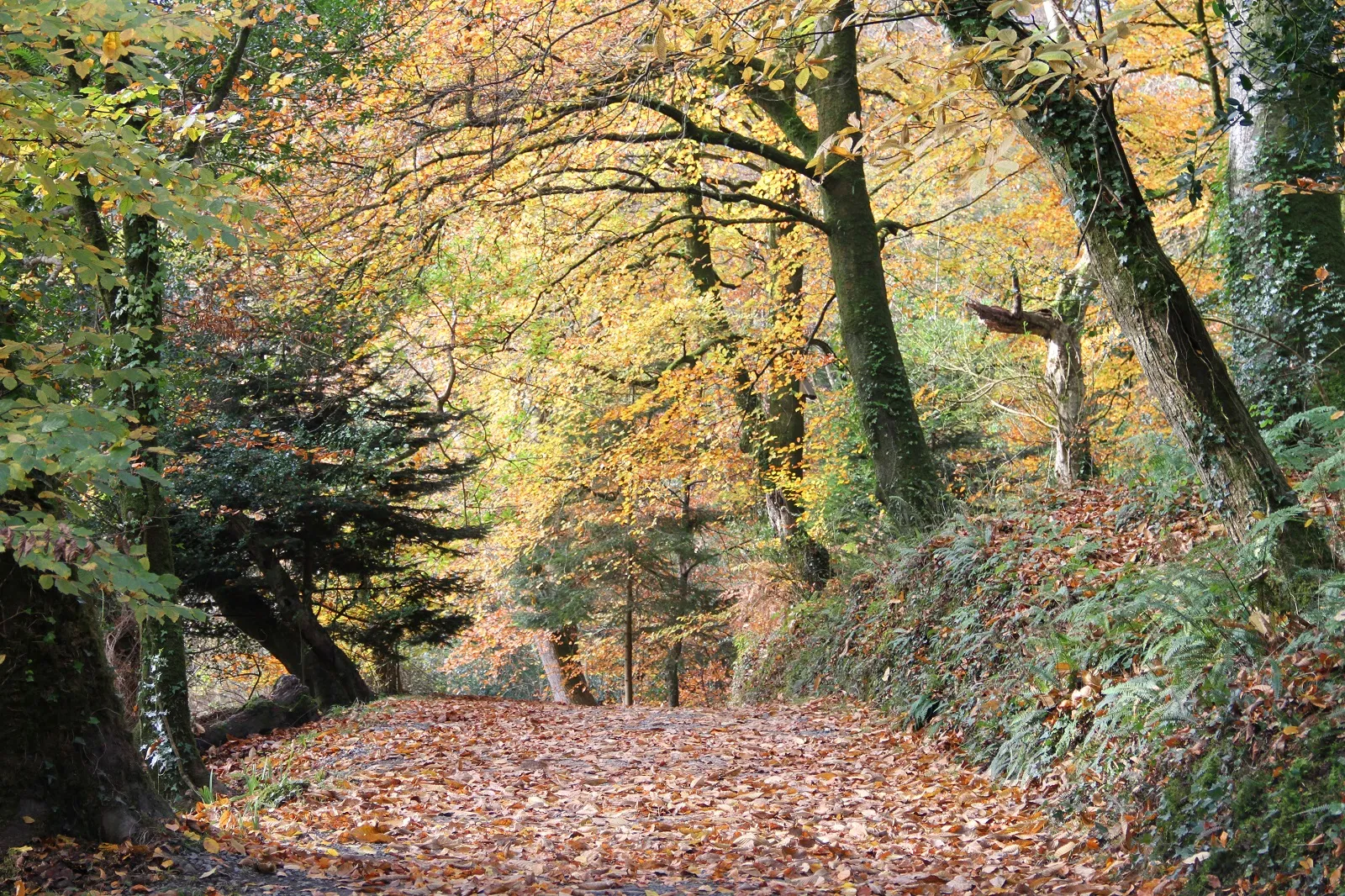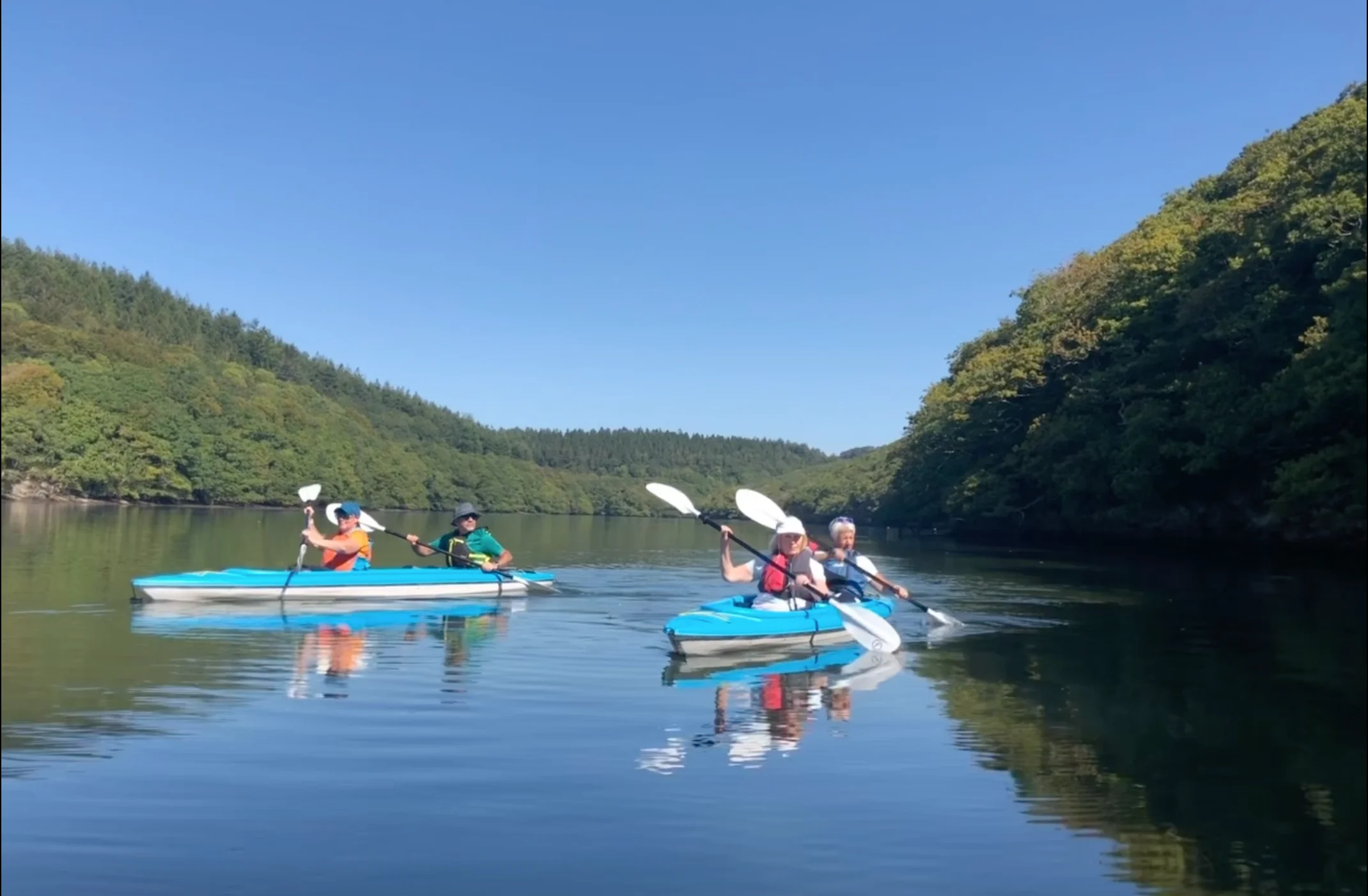
All at sea in 2025


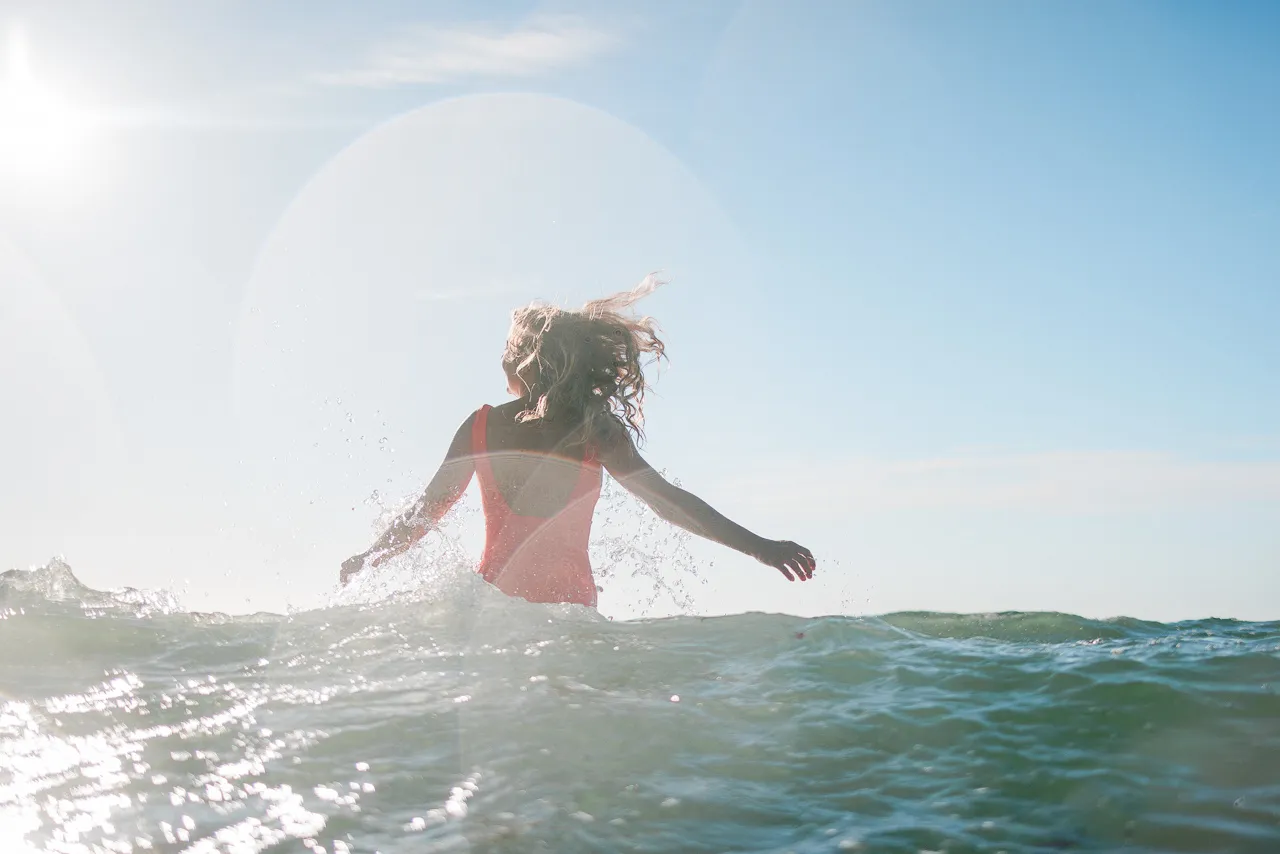
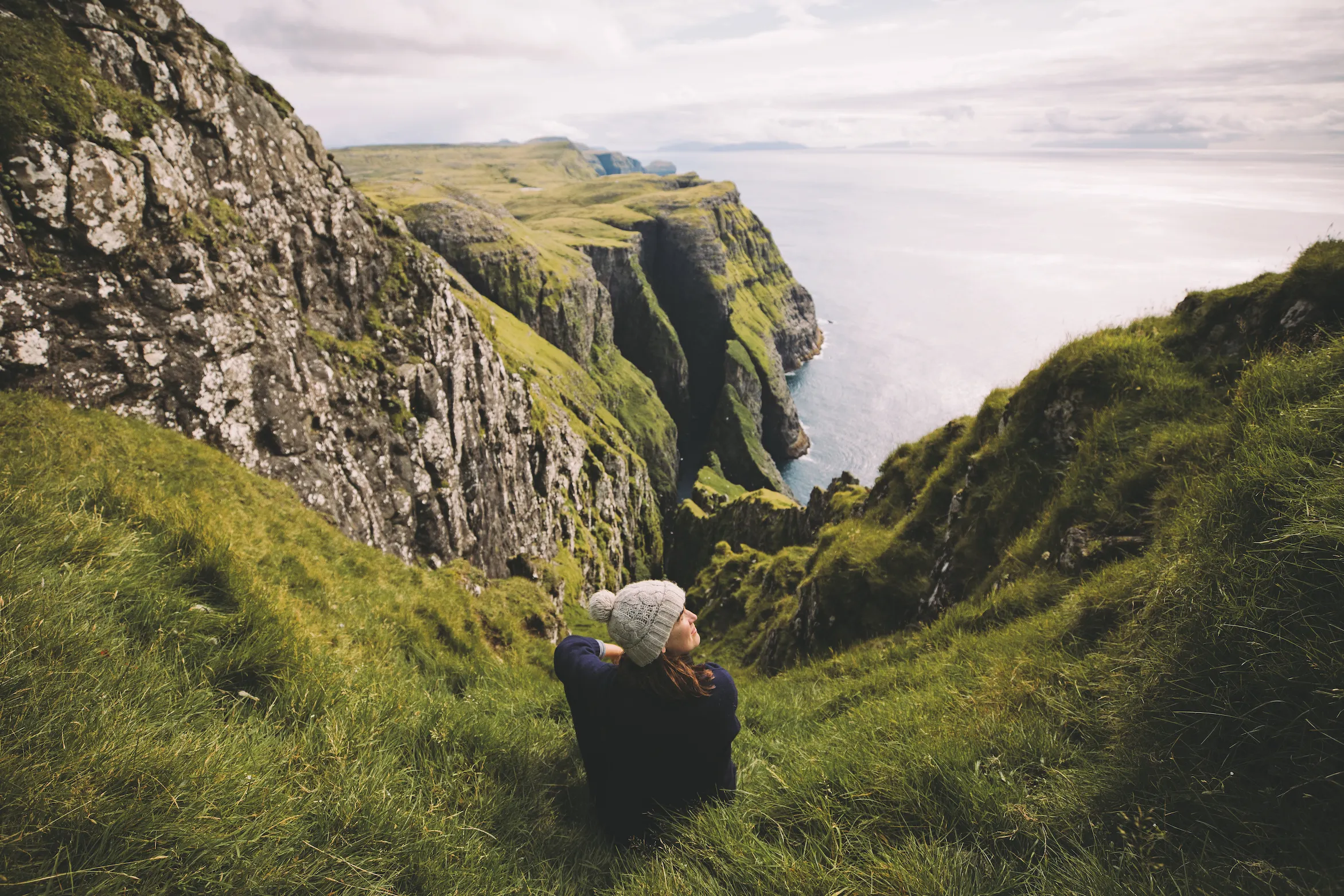
Catching the next train, a walking tour, road trips…how exactly do we slow down when we travel? We spoke to two slow travel writers to find out…
“Like anything in life now, there’s a synthetic version of the thing you’re looking for, and there’s a real version of it. Slow travel is just real travel.”
That’s Dan Kieran’s take on slow travel, something he discovered after an overland journey from London to Warsaw, Poland. That slow travel initiation involved cancelled trains, persuading a train manager to let him board a German train without a ticket, and delivering an impromptu English lesson on a Polish commuter train.
Dan, author of The Idle Traveller: The Art of Slow Travel, describes his travel revelation as magical, realising at the time that most holidays involved simply arriving in a destination, rather than really travelling.
“It’s about depth rather than time. It’s about putting yourself in a context that is unfamiliar. So it’s about opening yourself up, not closing yourself down,” he says.
For Jo Tinsley, author of The Slow Traveller: An intentional path to mindful adventures, slow travel is an invitation to explore the world at our own pace, “to journey lightly and adventurously.”
Check out more of what Falmouth has to offer by staying in one of our bespoke retreats in Falmouth.
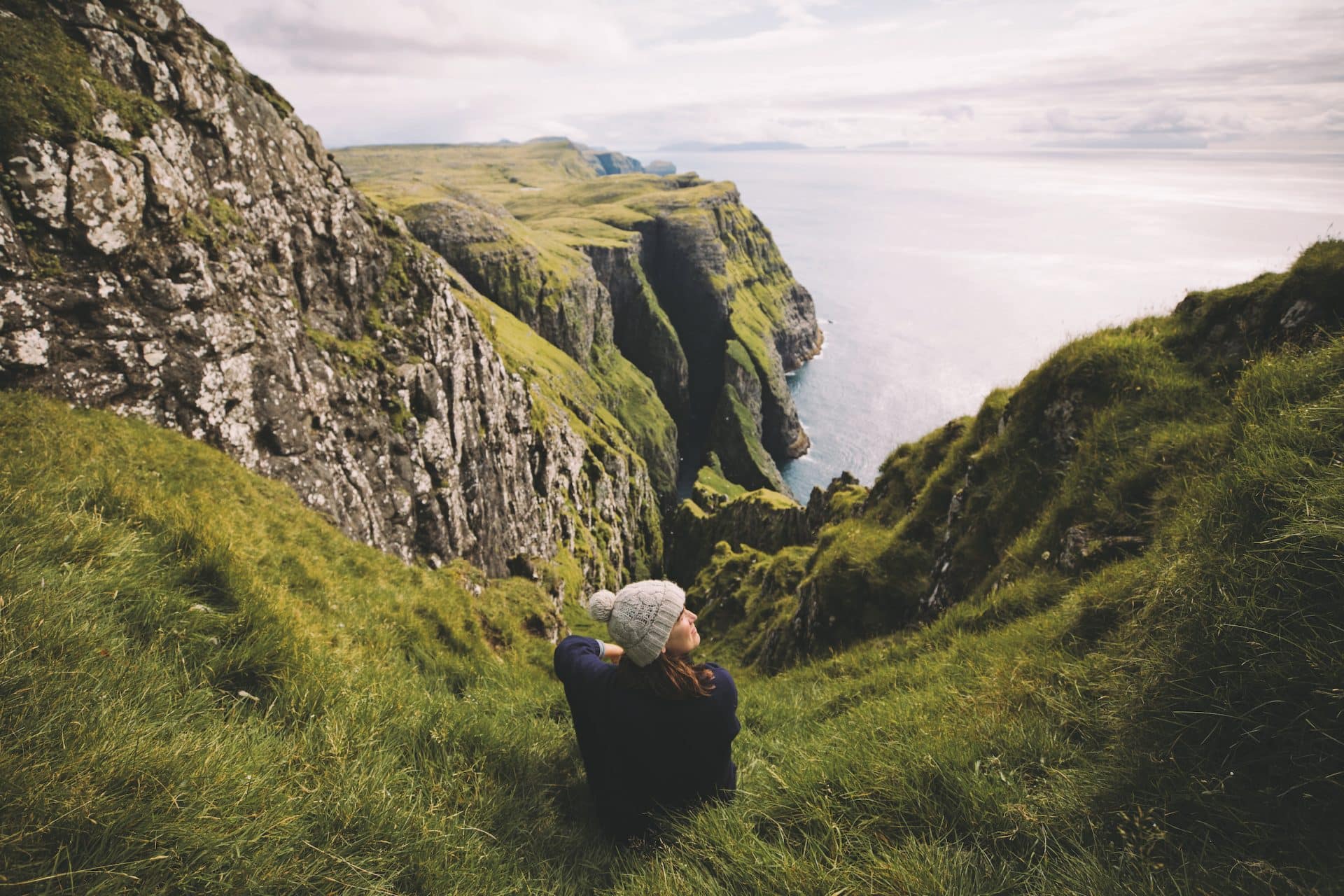
Image credit: Graeme Owsianski from The Slow Traveller
“It is the antithesis of bucket list travel, placing spontaneity over a packed agenda and allowing you to travel on terms that are meaningful both to you and to the people you meet along the way,” says Jo.
That sense of exploration means allowing space to connect to a place, “taking time to scratch below the surface of a destination; to build a stronger attachment with, and understanding of, the places we are visiting. This might mean gathering over coffee in a local’s front room; or understanding the connection between local ingredients and place.”
“It’s perfectly fine to have planned elements, but just have something that gives your trip space for the unknown to happen. Do the things you want to do; that’s the point of going, but leave space for serendipity to strike – even if it’s just for a couple of hours,” says Dan.
He also recommends picking up a guidebook. “But I don’t mean normal guidebooks. If I’m going to Berlin, I’ll buy books or novels set in Berlin – I want to feel connected to the city. Reading The Day of the Jackal when I went to Paris, I felt like I was living that book,” he says.
“If I visit the sea, I have to go in the water. I have to walk the coast path. There’s something hugely beneficial in feeling like you know the context of where you are,” he adds.
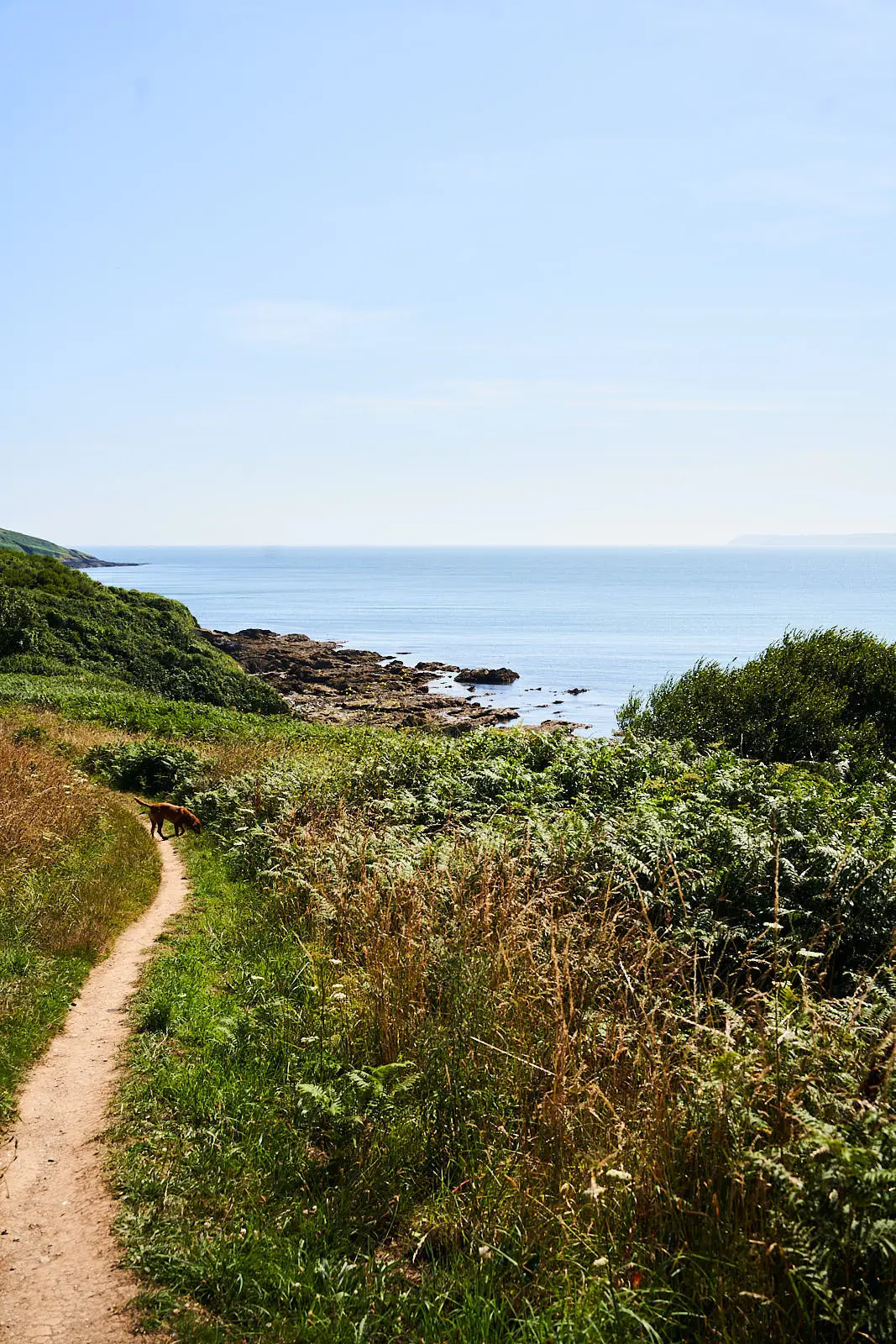
Image credit: Lily Bertrand-Webb
Jo says that travelling overland – by train, bus, boat, bike or on foot – encourages the exploration of slow travel, but it’s not prescriptive. It isn’t necessarily a question of speed or the length of a trip either.
“It is more about deceleration and reframing travel as a journey – it’s a mindset thing. Once slow travel becomes a mindset rather than a mode of travel, we realise that our journeys don’t need big budgets, long trips or far-flung destinations to be genuinely transformative.”
Experience the captivating beauty of dawn and dusk along the Cornish coast, as we compare and contrast these magical moments in nature’s theatre.
Jo embarked on an Icelandic holiday without a plan, seeking out the country’s thermal pools. “More often than not we’d simply pull over when we saw the ‘silhouette of a bather above two wiggly lines’ sign that meant a hot pool was nearby,” she says.
As well as following road signs on a whim, she relied on local recommendations and taking spontaneous detours. “Our meandering route eventually led us to the most remarkable pool of the entire trip: Krossneslaug, an infinity pool at the end of a 90km unpaved, potholed dead-end road, which looked out over the North Atlantic, as a gleaming iceberg idled in the far distance.”
It’s always tempting to pack a lot in to a holiday, which is the opposite of that slow travel mindset. Think spending a whole afternoon in one gallery rather than visiting all the top sights in a day, and taking some time to observe the local details where you are, says Jo.
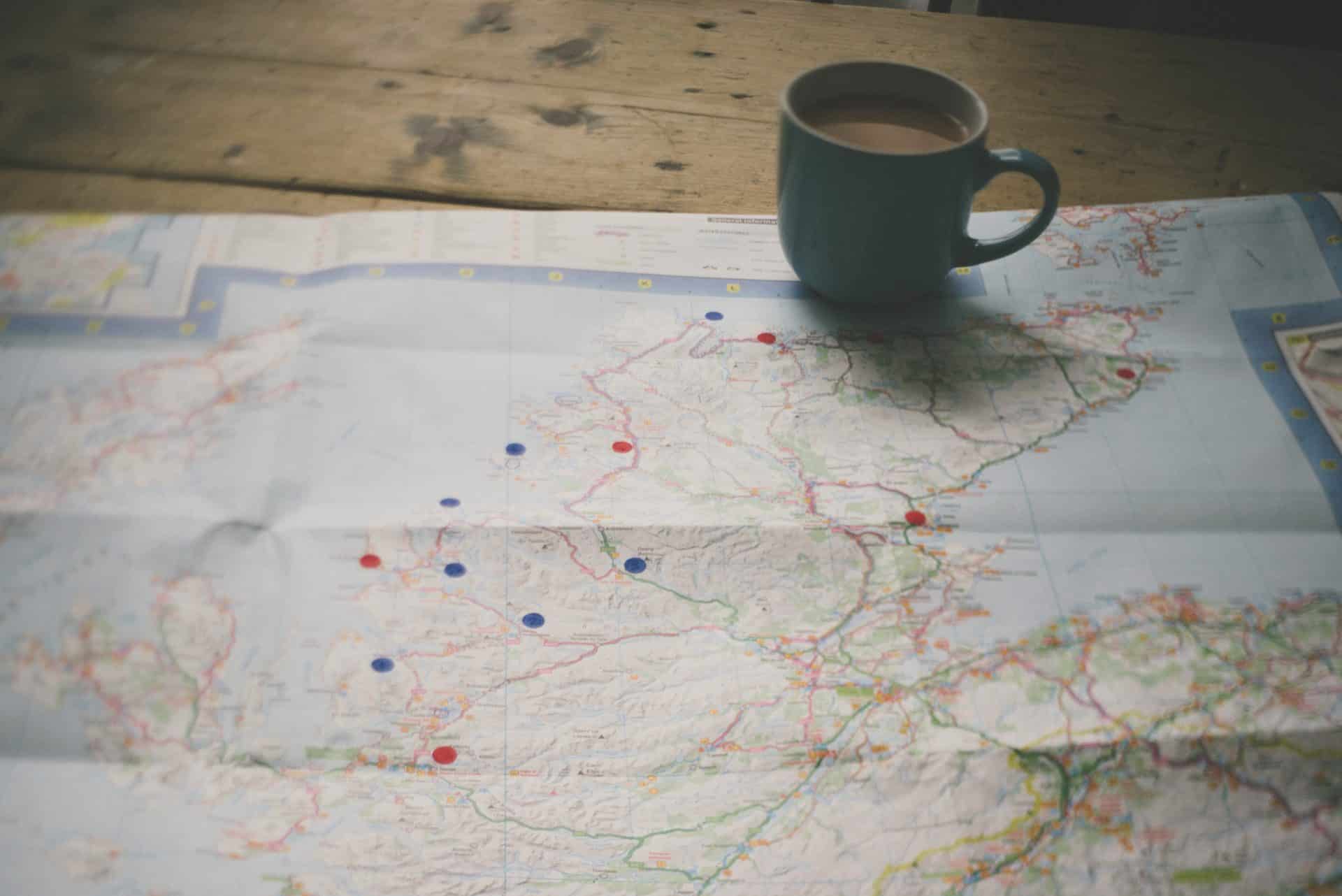
Image credit: Sarah Mason from The Slow Traveller
Visiting Cornwall for a workcation? Have a look at our holiday lets perfect for extended stays and working.
“When you’re living life doing your normal routine, your unconscious mind is in control. The reason travel is so amazing is you’re putting yourself in a context which is unfamiliar,” says Dan. “That’s what makes it nourishing, because you are conscious of what’s happening to you. That is when you really start to have a fabulous time.”
Slow down and take it all in, footsteps from the shore…
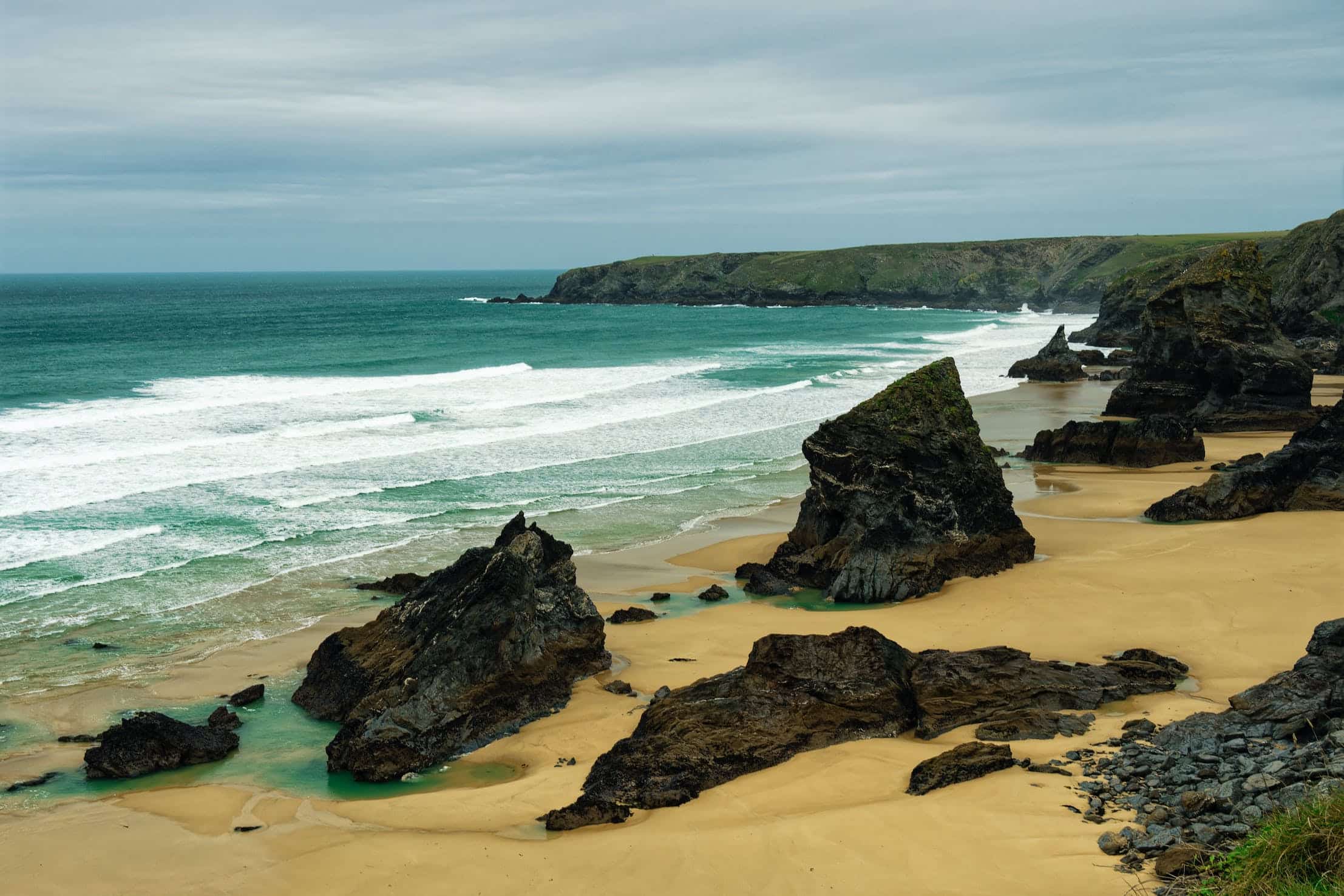
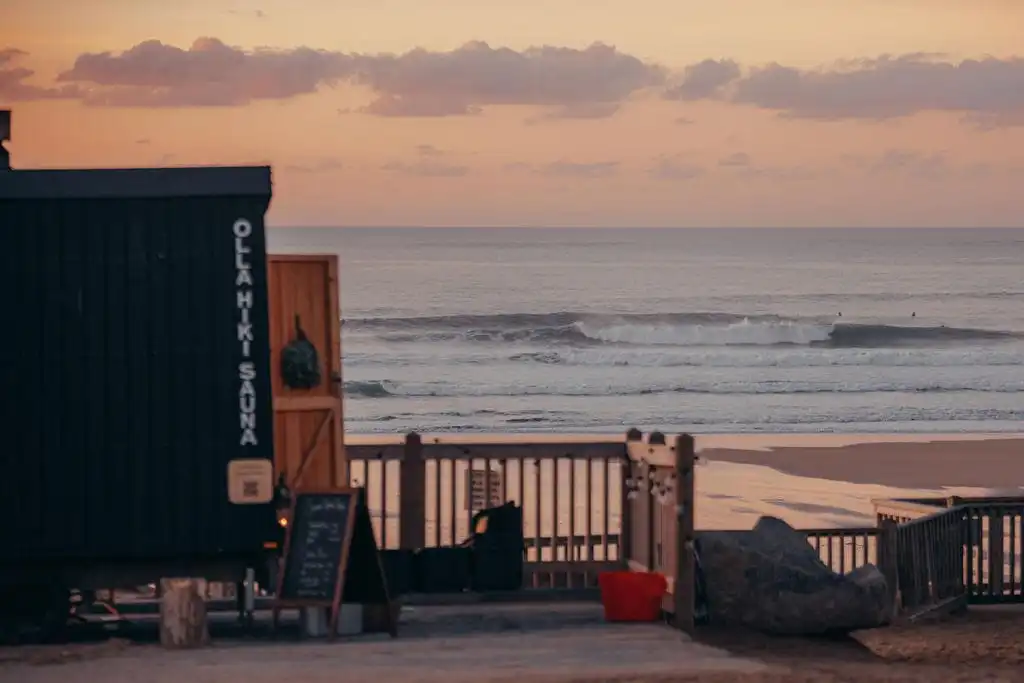
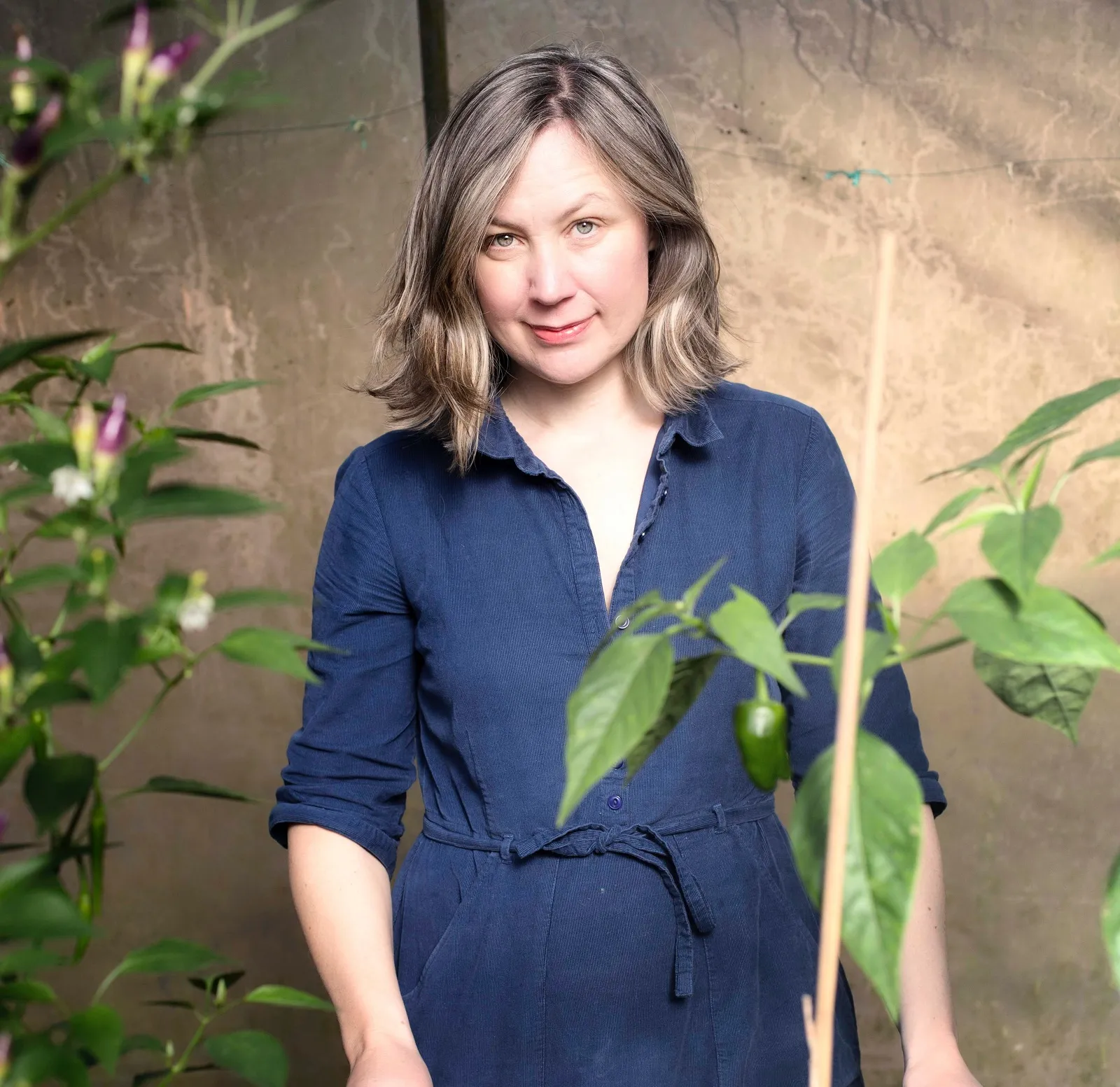
We spoke to The Almanac author Lia Leendertz about tuning into the season, how she makes home more klys in the winter and the magic waiting to be discovered above us and below our feet in coming months…
Visiting Cornwall with an electric car? Check out our holiday lets with electric car (EV) charging points.

Photography by Kirstie Young
One of your intentions behind writing The Almanac is to “provide a set of keys to unlock various aspects of the seasons and help us all appreciate the moment we are in, rather than stumbling, blinkered, through the year.” Why do you think it’s important to avoid such stumbling?
We can live like that and a lot of us do. I probably do too. I’m not coming at it from the point of view that I am living fully in the moment all of the time.
But it is about mindfulness, about living in the moment, and experiencing things more fully than you might otherwise. That always has benefits mentally. I think there is so much to be appreciated about our seasons. On this island, we have relatively extreme seasons, we have a full range and it actually changes very frequently. And each month is actually pretty distinct. By February, the light is starting to come in and that there’s a hopeful, seed-sowing feeling and by March we’re fully into the anticipation of spring.
There are lots of marvels to be found right there in front of you that are a really lovely thing to appreciate once you tune into it.
Fancy staying in Padstow? Check out our luxury holiday lets in Padstow.
How does The Almanac help us experience more when we’re outside?
One of things I try to do with looking at the stars is to show that this big cosmic universe is literally right there. Take the bright planets, they can be spotted from the most rubbish of skies; you could be in a city centre and look up and see Mars.
Being able to appreciate that even in our most urban environments and, then my goodness, in more rural places, like Cornwall, which are so great for seeing the stars. In all of these places you can tune into this big cosmic stuff and little, minute stuff in nature. It’s just so exciting, I think.
What are some of the smaller, unnoticed elements of the year you look at in the latest edition of your book?
Coming up, it’s those signs of spring that you can’t help but feel uplifted by, it’s quite ludicrous almost.
In December it can feel like winter is going on forever, all mud and sticks and then these little shoots come pushing through and it’s just irresistible, that feeling of hope, that the world keeps on turning is so reassuring: a little signal from the future, a pointer saying here it comes, all that good stuff, warmth, light, flowers, and buzzing bees, it’s all coming. Also the effect that the lengthening days has on us is irresistible. It takes me by surprise every year.
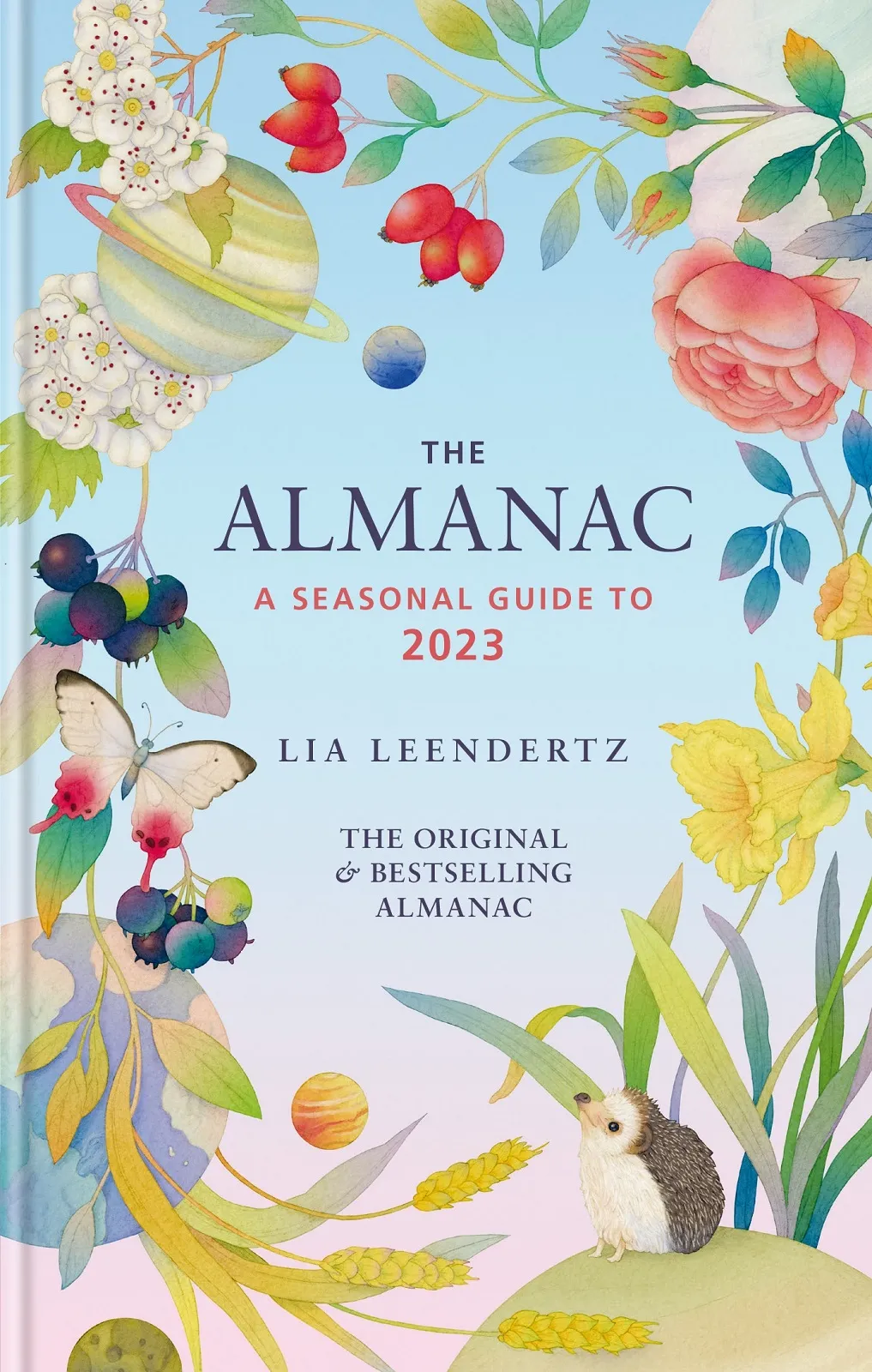 “We shouldn’t be fully emerging until early February, or early March. We should be tending to our energies in that way.”
“We shouldn’t be fully emerging until early February, or early March. We should be tending to our energies in that way.”And what about later in the year?
The theme for the 2023 edition is the solar system and zodiac – I’m looking at the stories behind the zodiac too.
I’ve been saving it up, because this is a particularly good year for spotting the planets. Sometimes they will line up with the sun so you can’t really spot them. But this year is going to be a really good year.
August is going to be really spectacular. Saturn is going to be at opposition; that’s basically when we are at our closest to it in the cycle, both on same side of sun, at our closest point. When we are looking at the night sky, the sun is shining on Saturn, sort of like a full moon. At the same time the rings are going to be open, be at their most visible. You’ll be able to look up at the night sky with a basic pair of binoculars and glimpse Saturn in all its glory.
There are other opportunities to see the planets just by looking up at the night sky with your own eyes, but Saturn is the big one for 2023.
Winter is when I most want to go for long walks and want to be outside, striding through the countryside, putting some distance under me, getting air into my lungs. I walk a lot more now that I’ve got dogs. Owning dogs, you don’t really get a choice, it doesn’t matter what the weather is like – the horrible wet weather or those lovely, crisp, fresh winter days.
What I have written a lot about in the 2023 edition is the idea of the cycle of the year in terms of our own energies. So in January and February allowing ourselves to be the mammals that we are, to hibernate a little, and not feel we have to thrust ourselves into the business world.
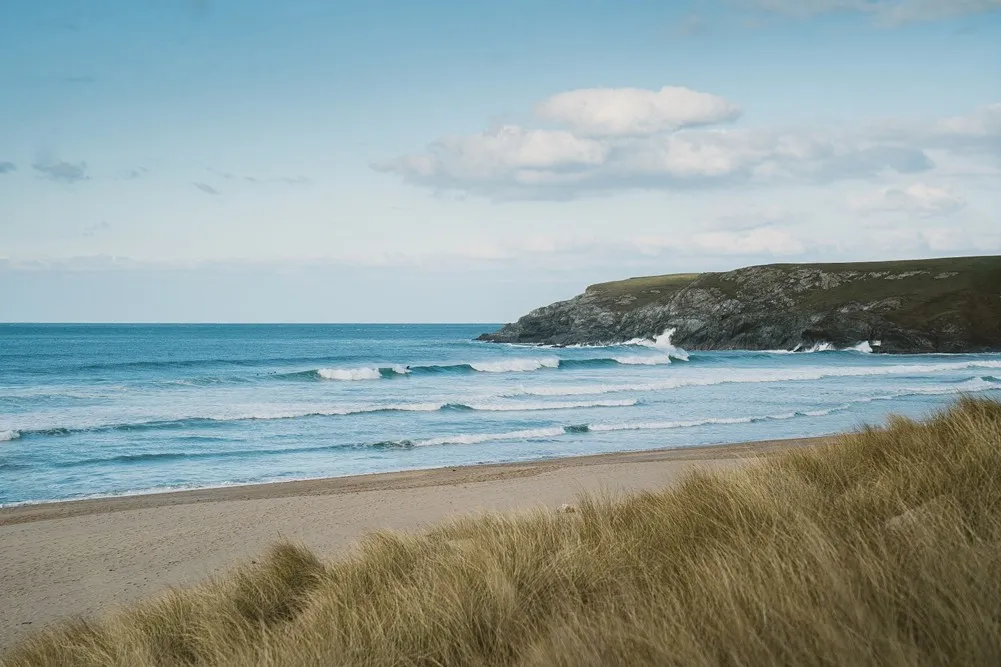
Of course, we do have to, but to try, within that, to find ways of being peaceful and calm, recognising that real need to not do the new year, new you thing. This is an entirely inappropriate time of year to be doing that!
This is the hunkering down time, hibernation time. We shouldn’t be fully emerging until early February, or early March. We should be tending to our energies in that way. When you’re not out and about doing that active stuff, it’s about really allowing yourself to sink into that, in order to set ourselves up for the year ahead. There is light coming and there are more active times coming, but this isn’t them, so let yourself have it.
How do you create klys feelings inside at this time of year?
I’m a big fan of candles perhaps even more so than fires. I feel like candles can give you a lot of that sort of atmosphere, that cosiness.
I make quite free with the candles these days. I try and light them every tea time and actually breakfast time as well. A breakfast candle is really gorgeous. It’s not about saving candles for best. Every day, and every morning, while it is still dark early in the morning; it doesn’t take any more time and just makes you settle in and feel: ‘ok, I’m allowed a little magic moment even in the most everyday of times’. Whether before you rush out to work or getting the kids to school, it’s a little, special cosy moment. So, yes, making free with the candles at all times.
We’ve looked at how connecting with the natural environment through foraging can bring something special to the table at this time of year. Do you have a foraging tip for right now?
Every week I go on woodland walk nearby and every week at the moment I’m scouring the ground looking for wild garlic shoots because they will start to come up really soon. They’re such an amazing and easy plant to forage, and so abundant when you find a patch.
It’s also very easy to identify, by smell as much as anything and has loads of uses. You can make very easy pesto and add it to bread, You can use it like chives and chuck it into all sorts of recipes. It’s a really good gateway plant into foraging generally. And a really nice sign the world is turning the way we want it to. I love the way that wild garlic just can’t resist, even if it’s so cold, if daylight is increasing it’s coming up, no matter what
Want to learn more about how to make the most of your travel? Read our blog on how to do slow travel.
Receive seasonal updates and more from Lia on Instagram, and find a copy of The Almanac 2023 here.
Find your klys retreat and embrace the seasons by the shoreline.
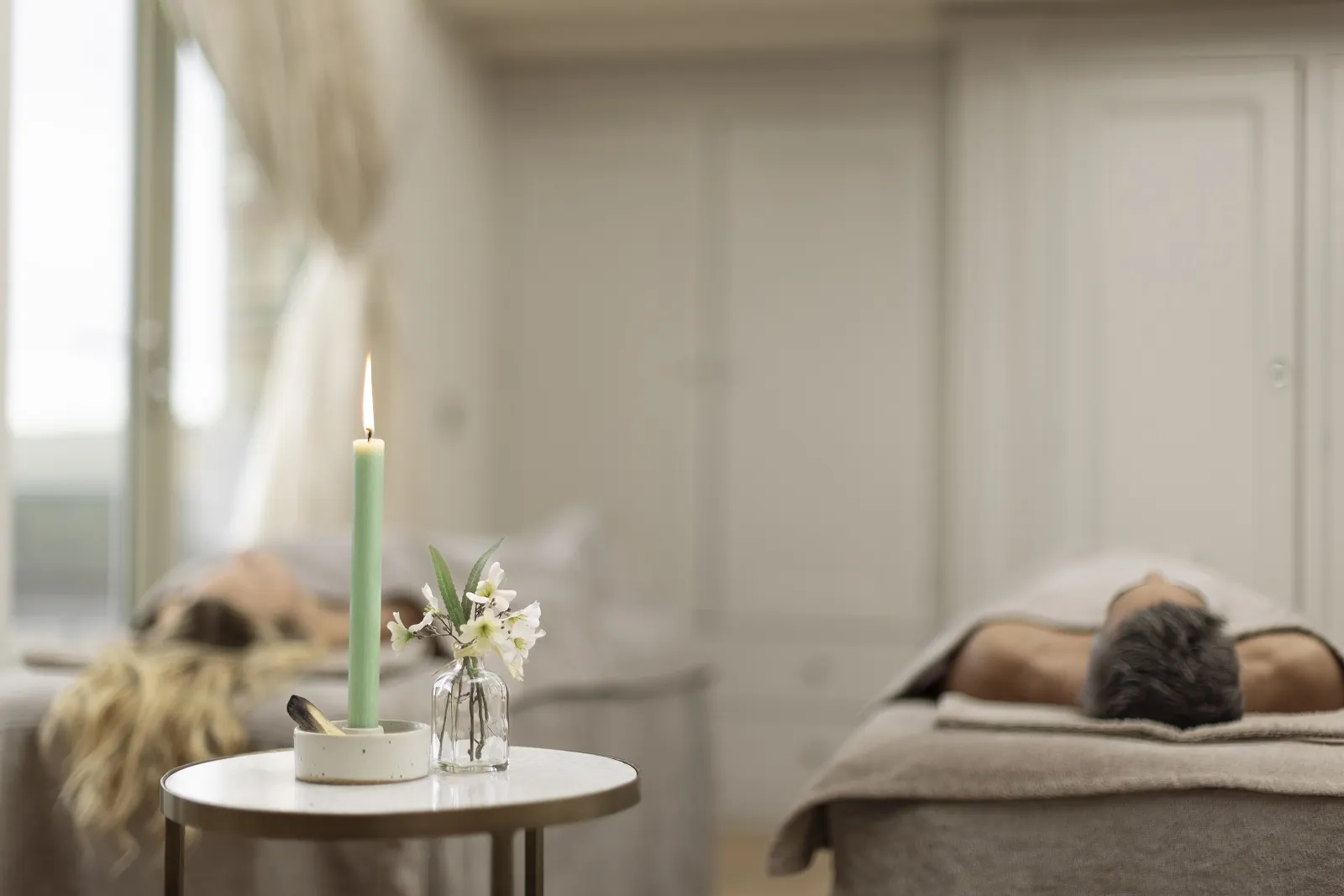
We recently caught up with our friends at The Wellness Concierge, previously named Hauora at Home. A Cornish beauty service, The Wellness Concierge offers luxury treatments within the comfort of your home or a self-catered holiday retreat.
Here’s their director, Sara, discussing their latest rebrand and what’s coming up for 2023:
“In 2021 The Wellness Concierge was born, at a time when I was looking to make meaningful change in the rural beauty and wellness industry. My dream was to create a mobile, five-star service that authentically took into consideration the holistic wellness of our clients. I felt that I could use the knowledge that I had amassed over my 20 years in the industry to create a service that was deeply authentic and engaging.
Fancy staying in a holiday retreat with a hot tub? Check out our cottages with a hot tub for a relaxing getaway.

The clamour of modern life means the demand for self-care is more prevalent and time sensitive than ever. In a world where our lists are never-ending and our schedules demand us to juggle multiple commitments, time has become our greatest currency.
At the Wellness Concierge, we give you some of that time back. We specialise in five-star treatments delivered straight to your door. By removing the commute to treatment appointments, you can reclaim these moments to spend with yourself or your family. Our concierge team will organise your various treatments, giving you the space and freedom to relax.
Check out our locations and retreats across North Cornwall.
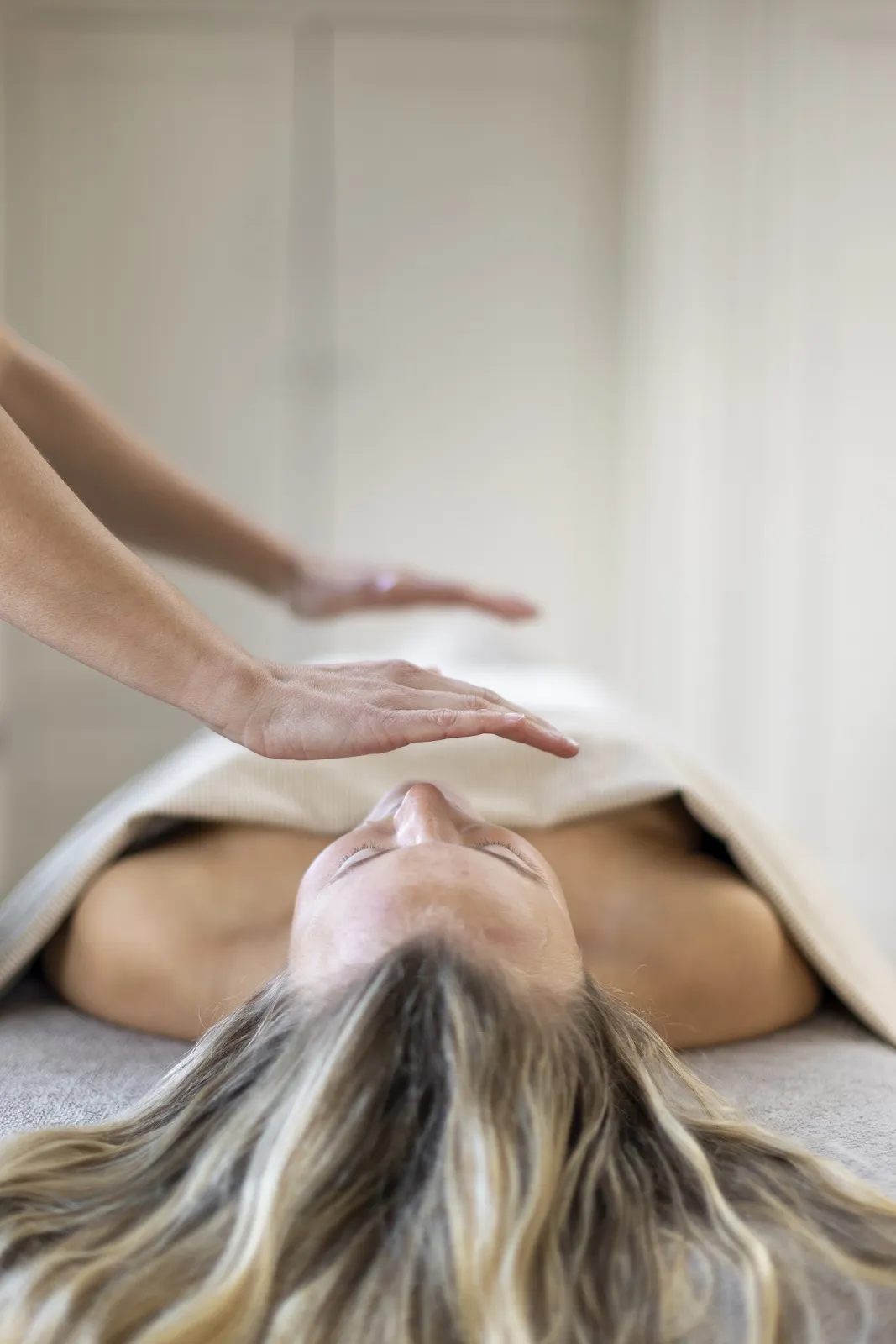
The shift to upmarket, at-home treatments is a conscious approach to modern wellness. The Wellness Concierge is looking to move away from the preconceptions of mobile beauty and redefine at-home self-care for the 21st century.
Another way that we do this is to lean into our values that make up the foundations of our business. We want to put a spotlight on the entities that support us: our therapists, the landscape that surrounds us and the community we exist within. A thriving business must do good whilst doing well, and we believe we are supported by the local communities that we live within. We strive to give back to these groups that make our work possible, and at present, we work with The Women’s Centre Cornwall. We also work alongside Ecologi with a view to becoming a climate positive company.
We offer a selection of treatments from massage to manicures, personal training to yoga and all in the comfort of your home or holiday home.
Experience tranquillity with yoga on a Cornish beach, where the serene coastal backdrop enhances your practice and rejuvenates your spirit.
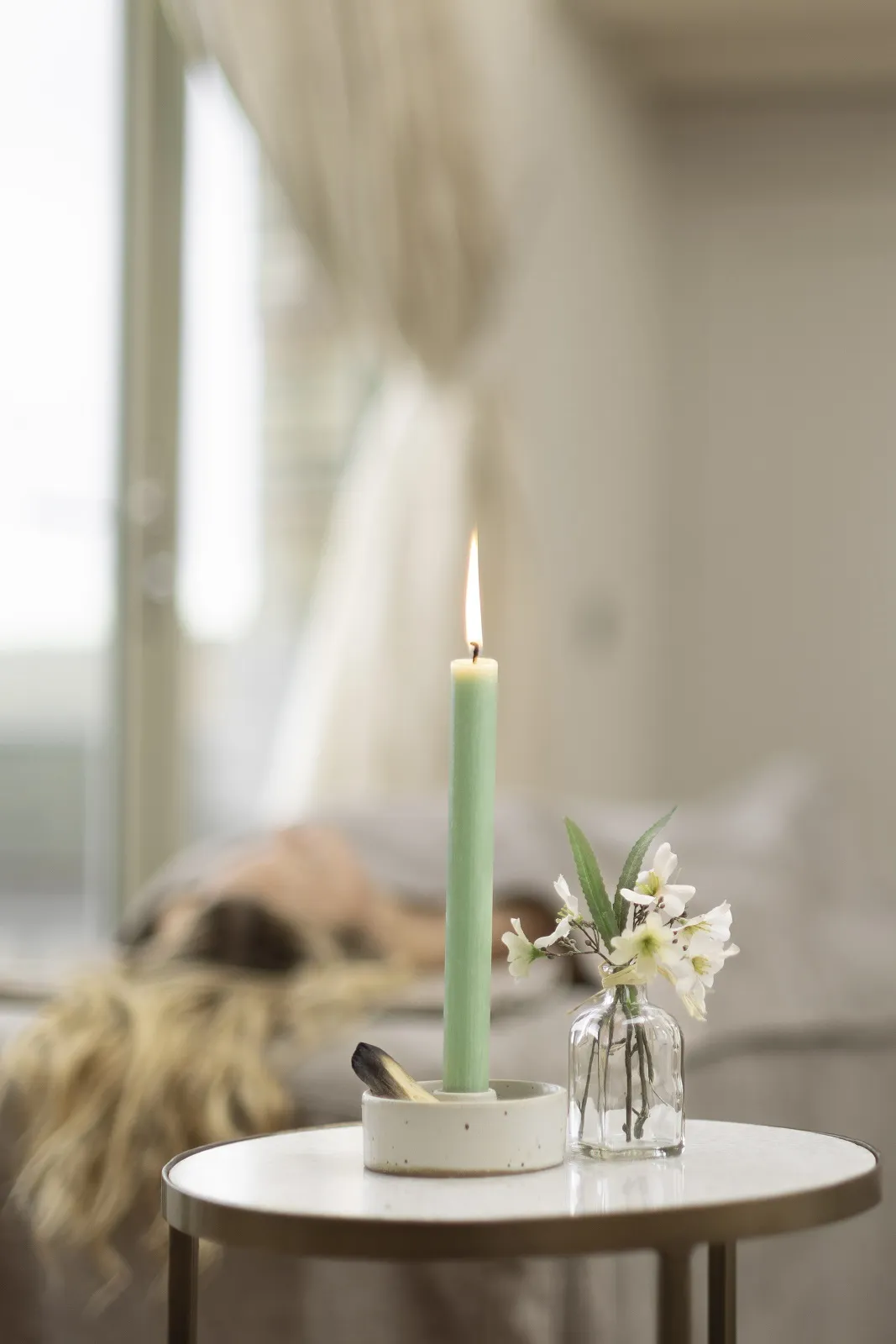
We truly hope you connect with our evolving wellness service. We pride ourselves on growing with and for our clients. We want to see our service through your lens and the lens of our dedicated team. If you have any questions for us please reach out on [email protected].”
If you’re interested in their range of at home treatments, browse their new website to find out more.
Book a self-catering retreat and enjoy some self-care by the sea.
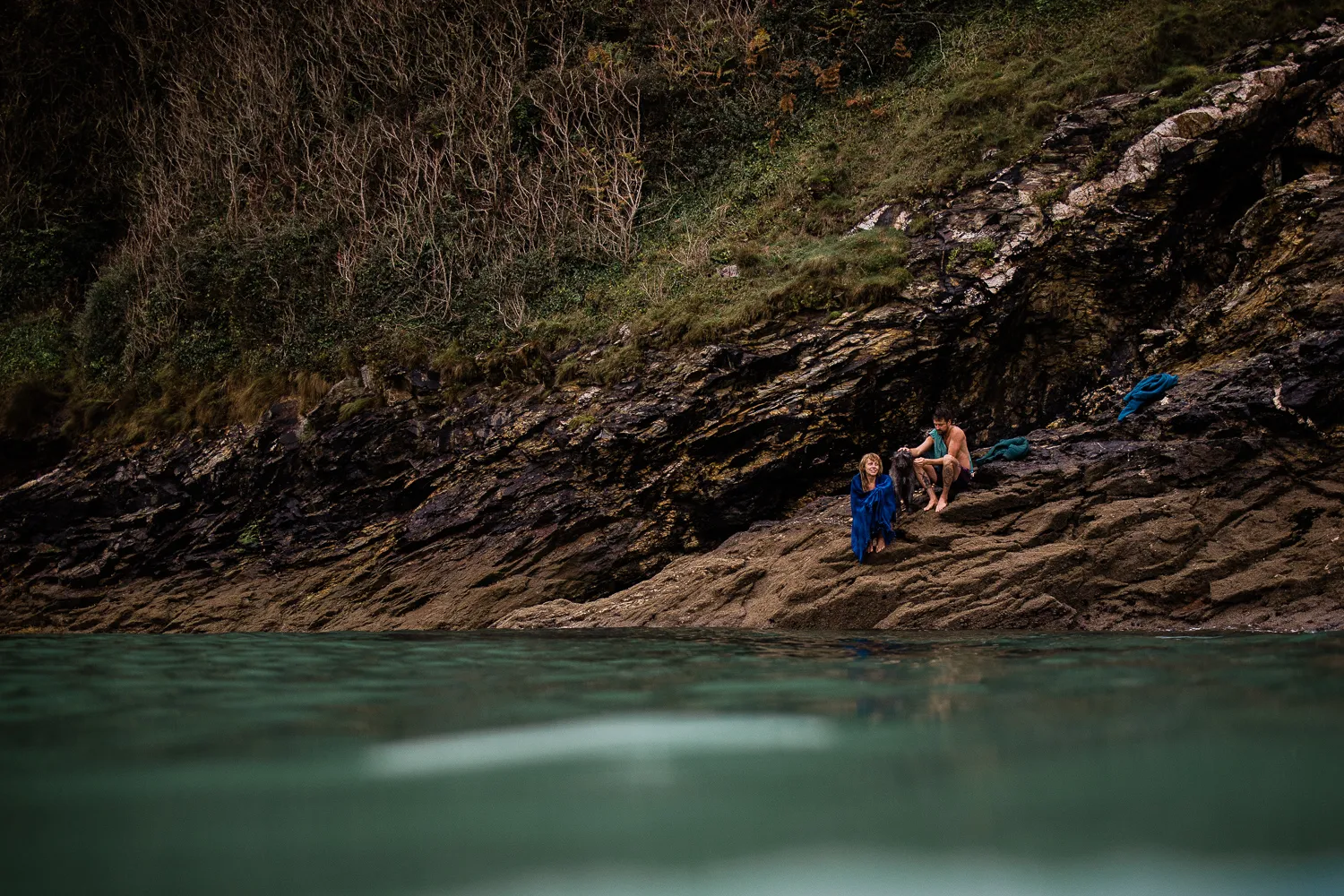
What a klys – Cornish for cosy and snug – approach for the year ahead, and to those annual life-changing resolutions, looks like…
The New Year is upon us. The Christmas parties are over, and you may have overindulged in, well, just about everything. And with a New Year, comes the inevitable resolution making. As convention dictates, you might want to lose weight and get fitter. Perhaps you’d like to strike a better work/life balance. Maybe you just want to be happier? But what if, instead of focusing on those big, nebulous goals – which inevitably end up overtaken by events and unachieved by December – you adopted a klys approach to change?
Visiting Cornwall for a workcation? Have a look at our holiday lets perfect for extended stays and working.

Defined as snug or cosy, the Cornish word klys is all about making the most of the beautiful wilderness we have here, before sinking into the warmth and snugness of the indoors as the winter deepens around us. In other words, by making lots of small, tangible changes to your everyday – revolved around the concept of klys and in turn engendering feelings of contentment – you may actually reach those bigger goals as a happy by-product.
“When I started feeling the drag of winter, I began to treat myself like a favoured child,” writes Katherine May in Wintering: The Power of Rest and Retreat in Difficult Times. “I assumed my needs were reasonable and that my feelings were signals of something important. I kept myself well fed and made sure I was getting enough sleep. I took myself for walks in the fresh air and spent time doing things that soothed me. I asked myself: What is this winter all about? I asked myself: What change is coming?”
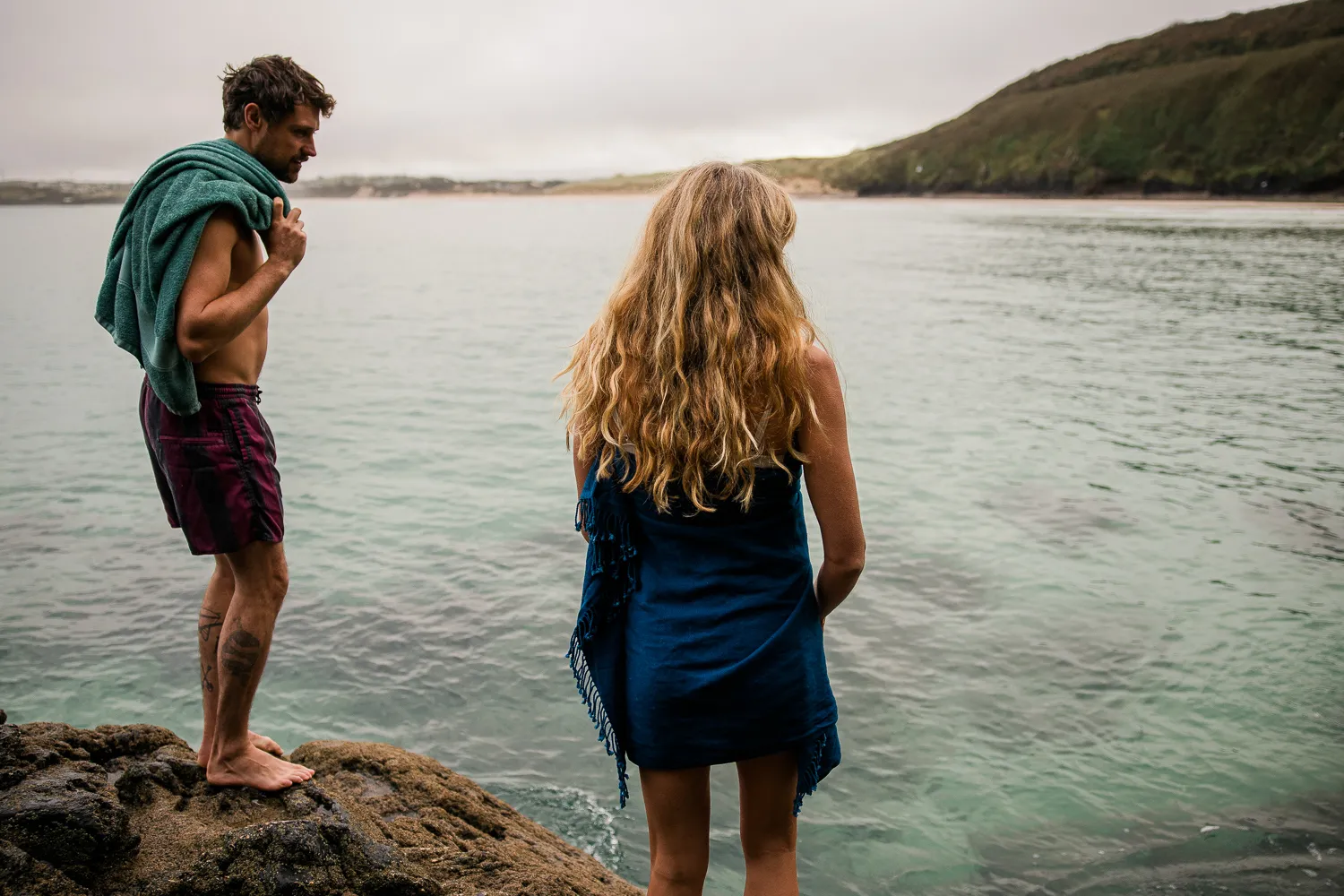
Winter is cold, winter is dark. But perhaps it’s an opportunity to slow down; to meditate on the last year, to consider where the coming year will take you, and to focus on easily-achieved activities that restore rather than drain. Central to klys is the idea of experiencing the bracing, raw elements in the Cornish wilds, before retreating to a wood fire and a warming hot drink – your skin tingling and your soul full.
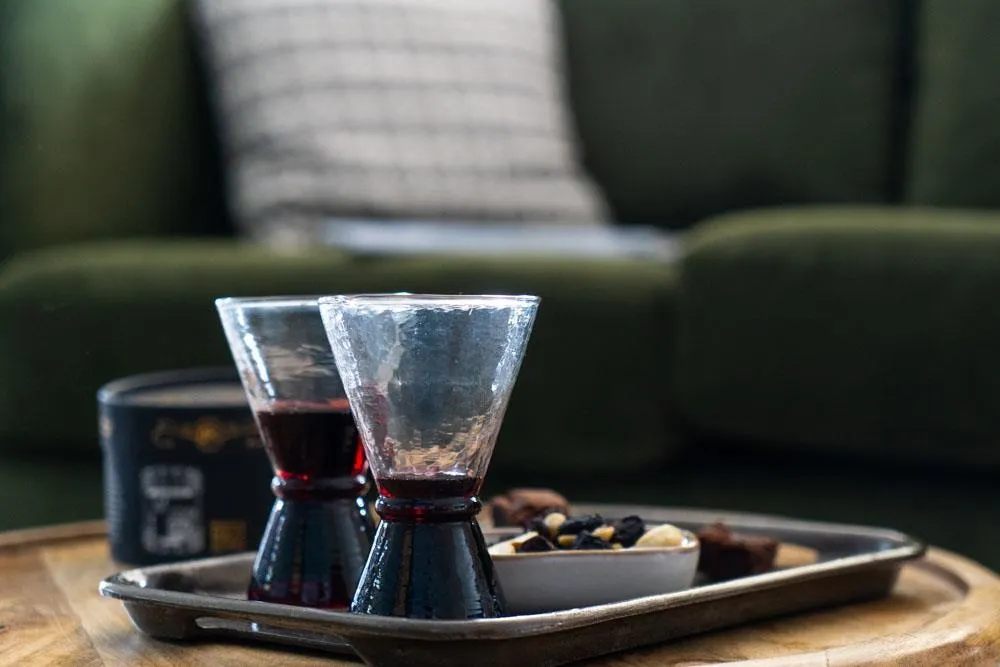
Step out of your front door and go for a rejuvenating walk by the sea (or if you want a rush of feel-good dopamine, and are well-prepared, a bracing dip). Instead of mindlessly scrolling through social feeds when you get inside, make a conscious effort to do something that doesn’t involve technology – or the, often bleak, news cycle.
From settling down in a comfortable chair to read a book by the fire or listening to an album from start to finish, to cooking a slow meal or simply watching the waves as they pummel the sand from the comfort of your window seat, these are all activities guaranteed to boost your wellbeing, physical and mental. Any time of year, but particularly now.
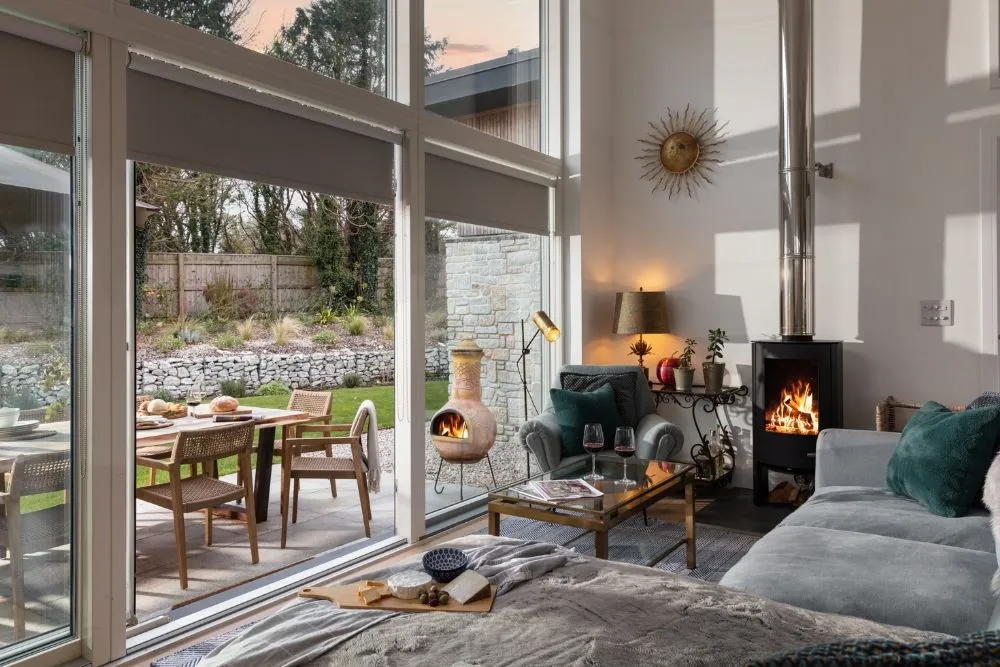
The feeling of klys needn’t be confined to solo activity – in fact, it’s a feeling amplified by sharing experiences with others, especially friends and family. Think of it as an extension of the feel-good festive season gone by. While the winter weather can be harsh, these conditions make the vast expanse of a deserted beach outside – with friends and laughter and a couple of cosy hours spent in the pub after(with loved ones and locals alike) – all the more rewarding.
Check out our other locations and other retreats across South Cornwall.
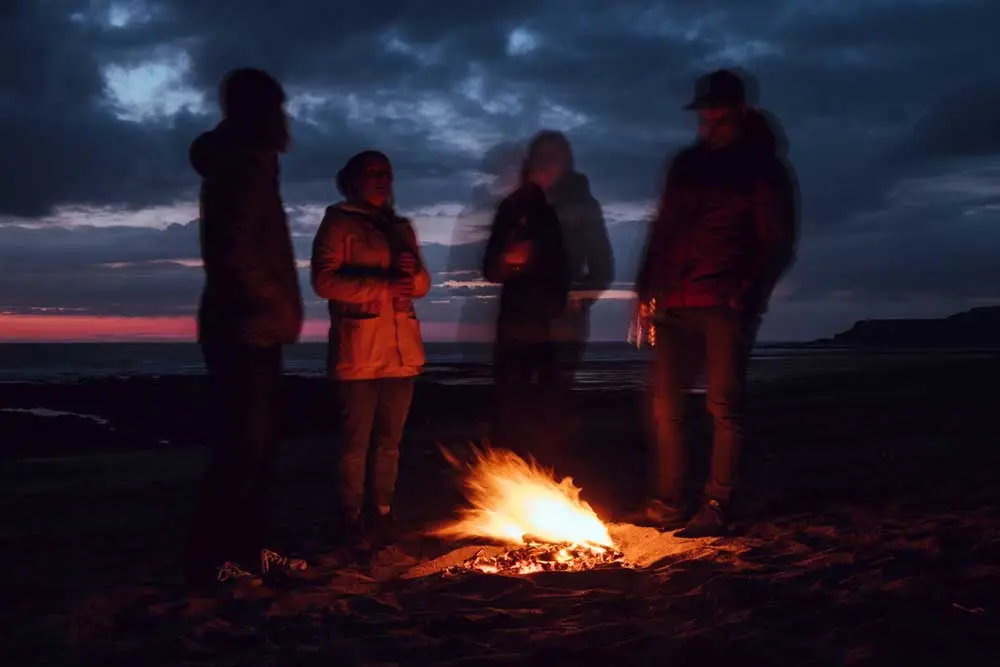
Choosing to adopt a klys way of living for winter means adapting to the cold season accordingly. Not being afraid of nature and the elements, but rather embracing them wholeheartedly and being open to how they can make you feel, how they can change you.
“In our relentlessly busy contemporary world, we are forever trying to defer the onset of winter,” writes May. “We don’t ever dare to feel its full bite, and we don’t dare show the way it ravages us. An occasional sharp wintering would do us good.”
Want to learn more about how to make the most of your travel? Read our blog on how to do slow travel.
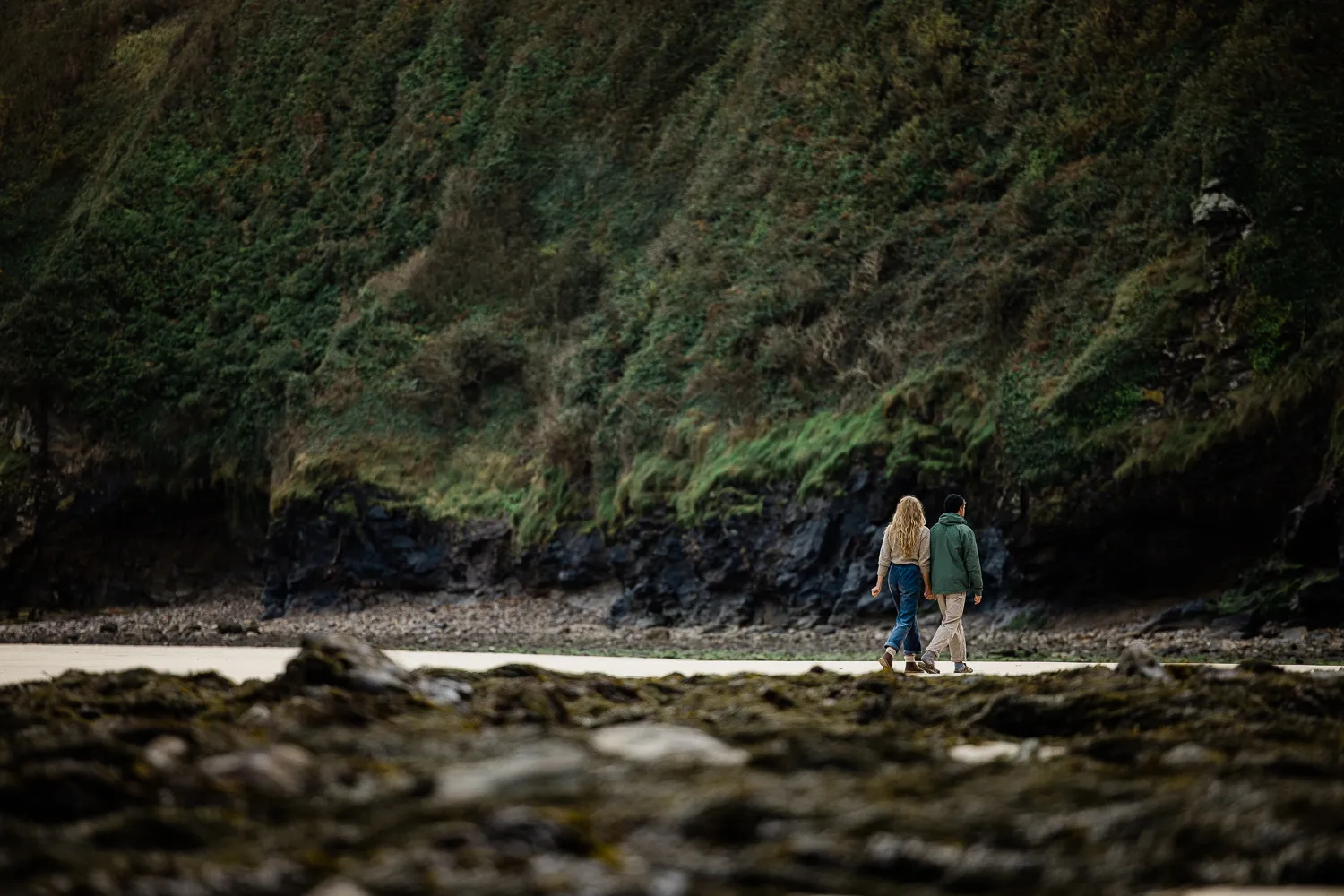
Give yourself to winter and the pursuit of klys, and come springtime, you will find yourself fortified and energised for the seasons ahead. And maybe, just maybe, you’ll have unwittingly achieved those goals you normally set yourself every January.
Experience klys this January, in a beachside retreat where you can embrace the elements outdoors before getting cosy indoors. Browse our selection below.
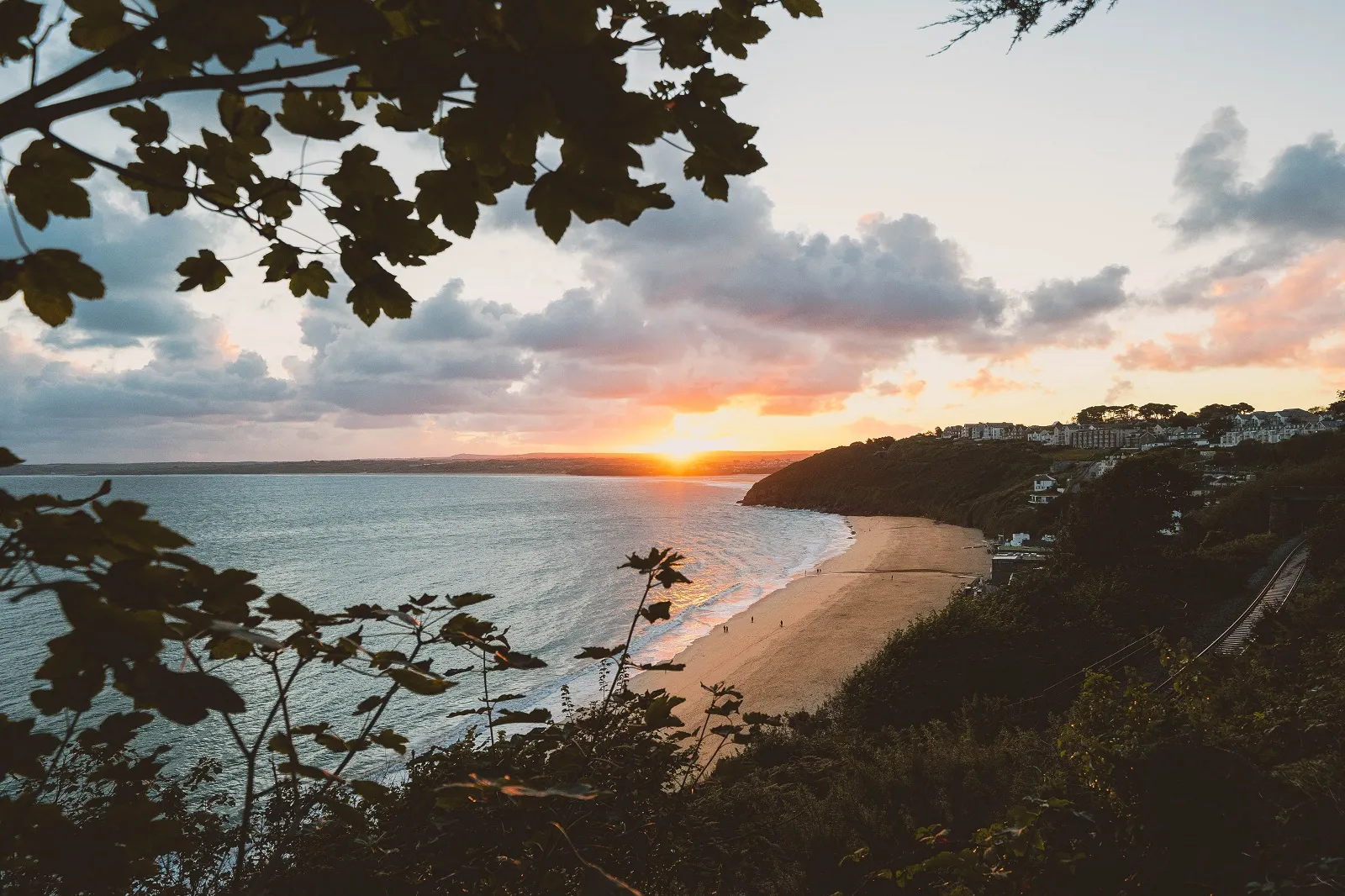
The approaching festive period offers a welcome chance to unwind after another tough year. Here we explore how you can create the ideal family winter break, one that offers all the rich pleasure of the holiday season – and none of the stress.
Fancy staying in a holiday retreat with a log burner? Check out our cottages with a log burner for a cosy getaway.
Christmas is a rare chance to enjoy life’s simple pleasures, to take a break from the everyday grind and spend quality time with loved ones. All too often, though, the desire to get everything just right only adds to the pressure: you squeeze several generations into the family home; sweat away over an ambitious roast that fails to satisfy the nuanced dietary needs of the gathered hordes; and despair as everyone fights over the TV remote.
But the festive season does offer another opportunity – to truly escape. Together. And with its epic landscapes, cosy evenings, and luxurious food and drink, Cornwall offers all the ingredients you need to stuff your festive break with deep, restorative joy – leaving the whole family feeling totally at home.
Here are a few suggestions for getting that festive break just right…
EXPLORE
When it comes to blowing away any tensions and cobwebs, nothing beats walking beneath sprawling winter skies – whether crisp or foreboding – and breathing in the smell of a freshly whipped sea. Cornwall is about letting the quiet magic wash over you. You just have to layer up – and don the gloves, hats and boots – and get out there.
You can take your pick from hundreds of miles of breathtaking coastal walks, and winter is an excellent season for descending on to the county’s beaches. Whether marching across miles of golden sand, or using a low tide to explore hidden coves, this is the only chance you’ll get to have the entire sand to yourself.
Teach the kids to fly kites. Treat yourself to an invigorating swim – or at least to the warm, romantic feeling of being out in the elements, hands warming on an enamel mug filled with seasonal spiced oats, enhanced by cinnamon, cloves and orange zest.

ESCAPE
When several generations of the family come together for a prolonged period, people will want different things from the experience. And while Cornwall will offer untold delights on the doorstep, there’s even more to explore further afield. Independence is the great stress diffuser. Bring separate vehicles so everyone is free to go off and explore, and to do exactly what they need to.
Of course, the one thing anyone wants to do with precious time away from work is relax. The problem is that kids tend to be up at the crack of dawn, demanding entertainment. But that lie-in needn’t remain a distant Christmas wish: ensure everyone takes their turn on ‘getting kids out of the house early’ duty, so the rest get to rest.
Check out our holiday properties in Mousehole to experience everything the area has to offer.
You could even consider cluster-booking apartments in the same complex. Whether your group includes energetic young children, couples craving private time, or seniors seeking just a little bit of shut-eye, everyone will have their own special place to retreat to.
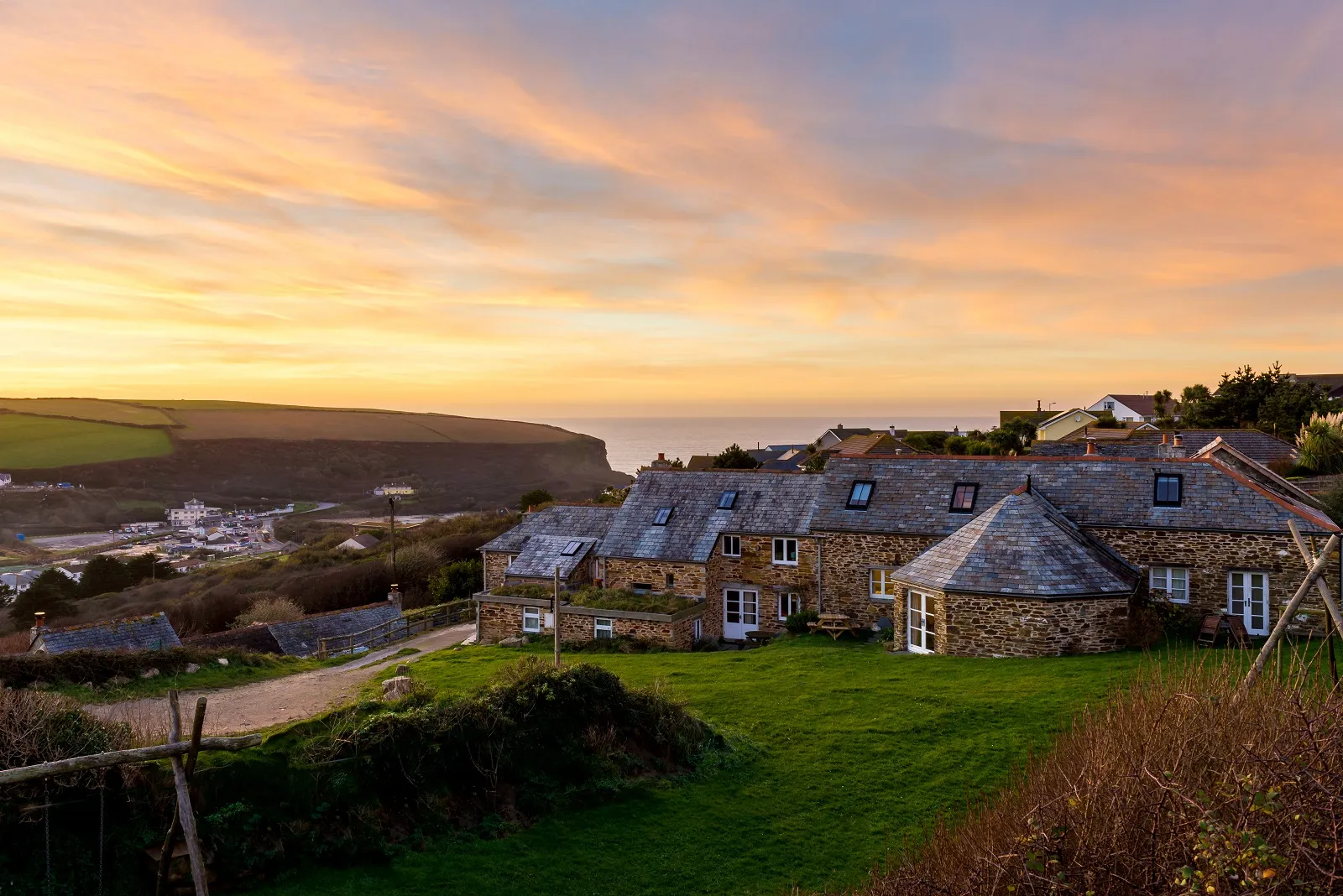
COMMUNE
Cornwall has a healthy dose festive romance too – from the transformative magic of the Christmas lights around the harbour at Mousehole, to the childlike delight of the Truro City of Lights annual lantern parade. Local theatre groups stage seasonal work in spectacular locations around the county, including the clifftop Minack Theatre, Heligan Gardens and countless woodland and coastal locations.
Then there’s the simple bonding pleasure of pausing whatever you’re doing to watch together as the sun sets over the sea. Stand on a harbour under the crisp winter skies, the lights flickering on inside the surrounding cottages, and find your way to the pub.
As well as potentially chancing upon local folk music by a roaring hearth, there’s no shortage of mouth-watering food being offered by Cornwall’s country inns and restaurants these days – on clifftops, moorland, or nestled into breath-taking creeks.
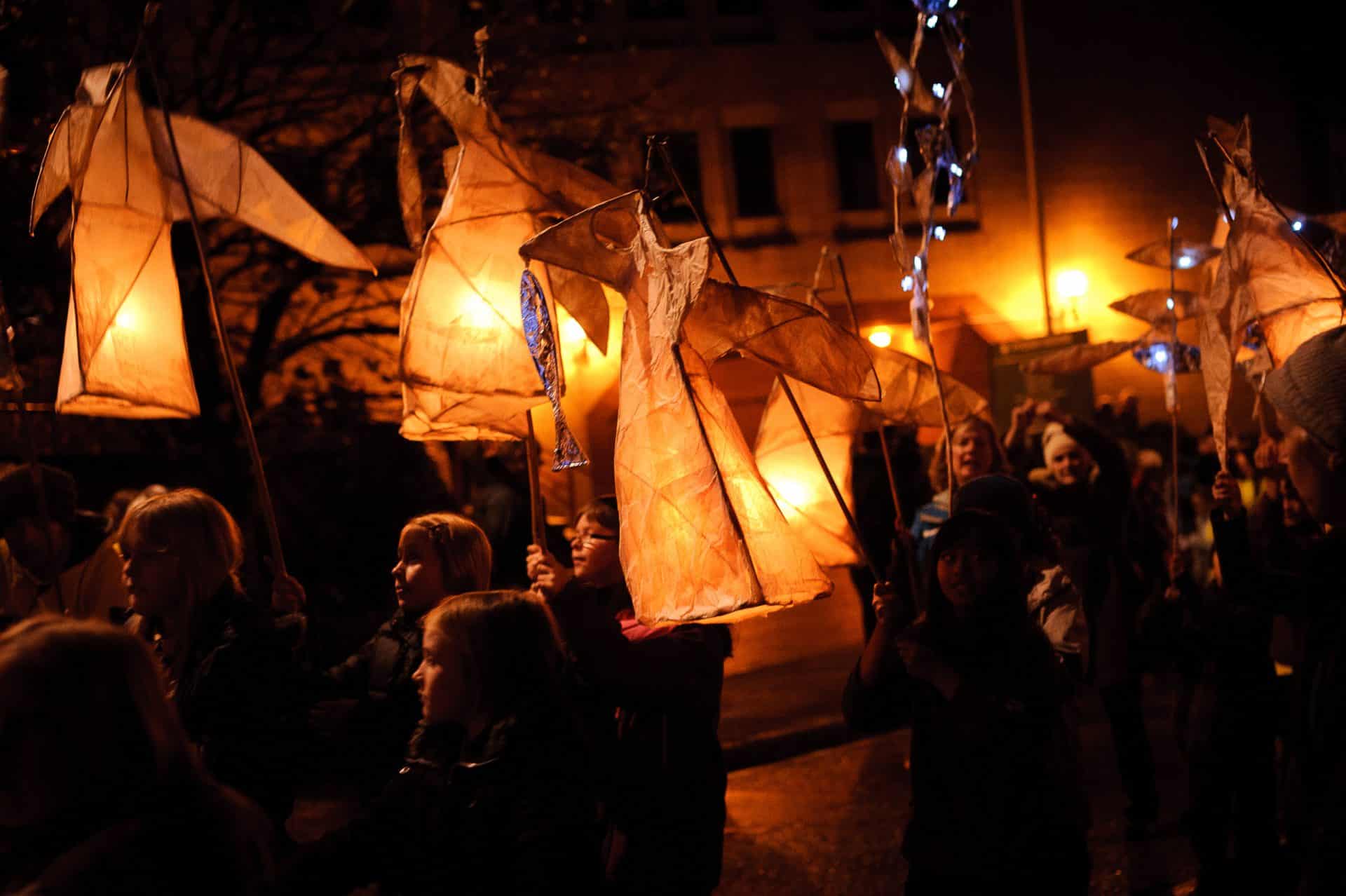
RELAX
Much of the delight of exploring what’s outside lies in the deliciousness of coming home. Return with ruddy cheeks, kick off your boots and step into a hot shower, as someone heads into the living room to fire up the log burner. Then settle in for a long, slow evening of comfort.
Sit back and relax, and reflect on the satisfaction of a day, before lining up a film. Or perhaps it’s simply time to be alone, together. Disappear into your own world with a good book, iPad, or paper, while you savour a mug of hot chocolate. Or enjoy a tipple from Cornwall’s growing army of award-winning brewers and distillers, who offer premium craft beer, rose gin, whiskey, vodka and rum, all locally sourced and made.
Read our blog on why celebrating Christmas and New Year’s in Cornwall is the perfect time to explore and begin new traditions.
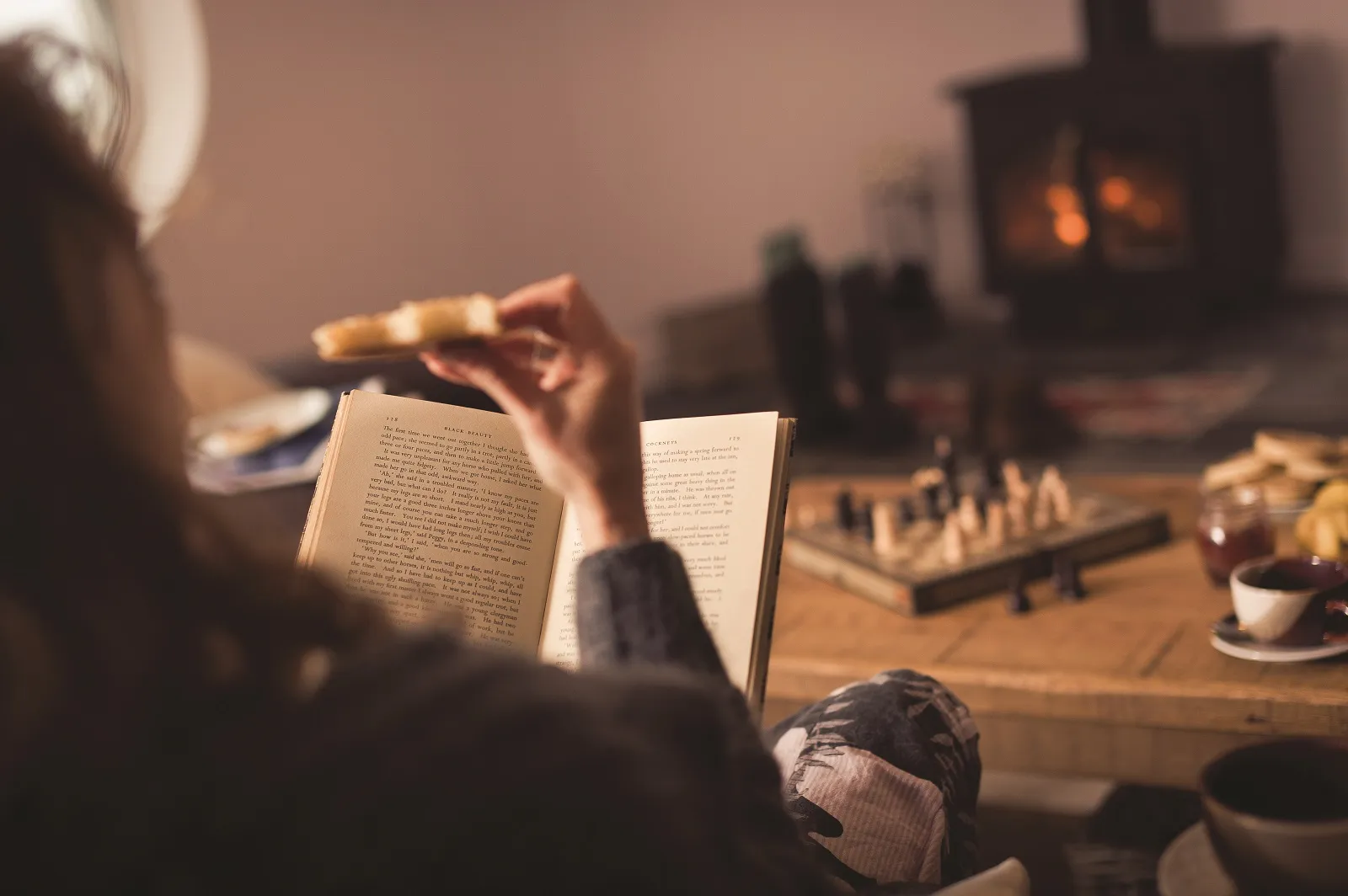
FEAST
Christmas is all about communing for shared meals. And sharing the cooking. One great way to enjoy a break from all the resting is by testing your culinary chops, enjoying the time and space to create a delicious new dish for your assembled loved ones.
Why not challenge yourself to use only local seasonal ingredients? It will reward the effort. Hearty winter veg like cauliflower, cabbage and broccoli are all readily available from the county’s well stocked farm shops and markets, and pair well with locally produced beef, pork, poultry and fresh fish. Or local pot-caught crab, which is a great sustainable choice through the winter.
You can, of course, take this to the next level – by foraging for edible greens. Keep your eyes peeled for alexanders, nettle tops, wild garlic and wild cress. Researchers have shown that bacteria in the soil releases serotonin – a mood-lifting neurotransmitter – the perfect winter tonic.
Whether you’re creating mezze-style sharing plates, or hearty stews and soups, combine it all with freshly-baked sourdough, and be sure to save some bread to enjoy the next morning – with farm-bought eggs and locally roasted coffee.
What will it be for your Christmas retreat?
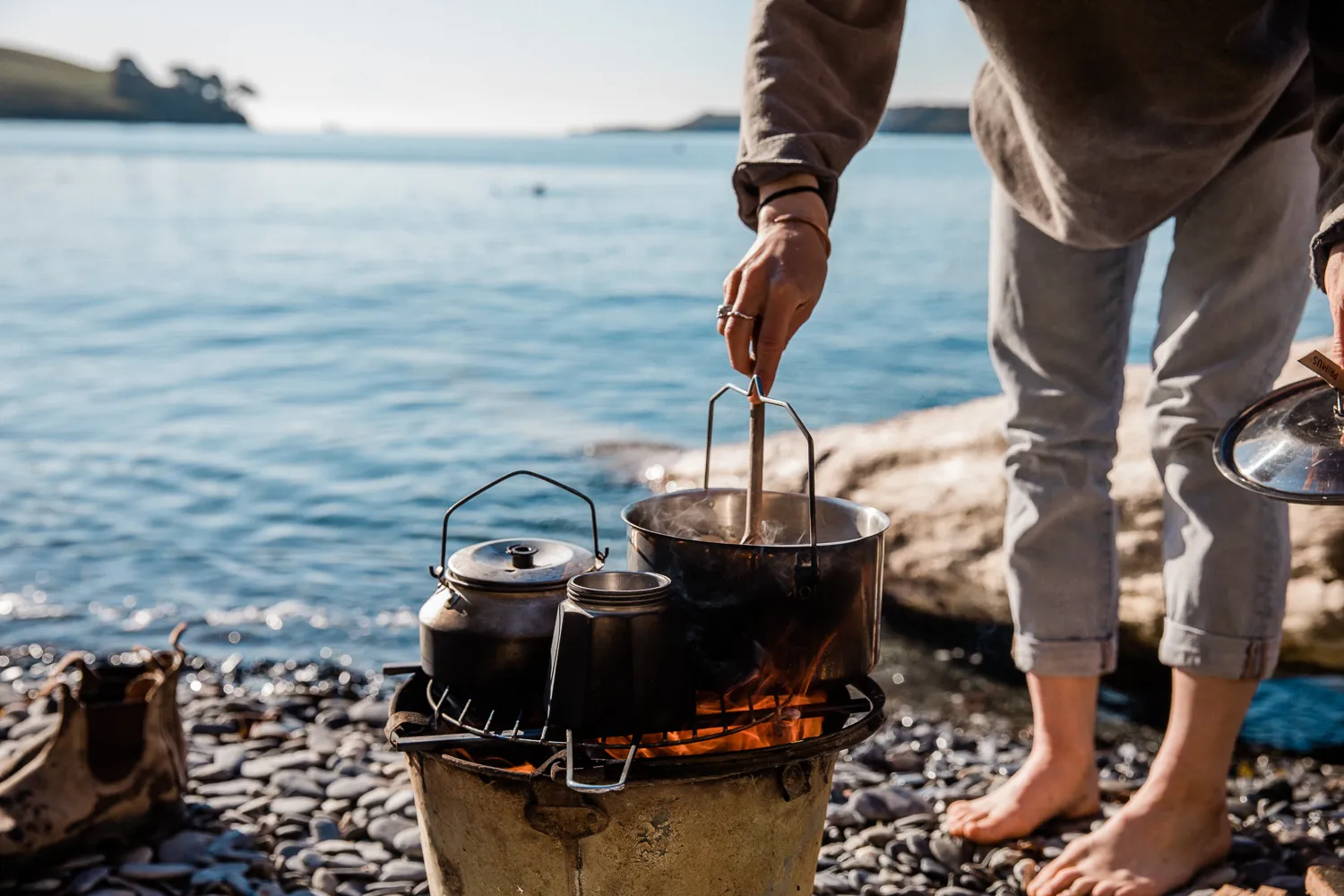
Summer is coming to a close, but autumn in Cornwall has its own magic. Quieter beaches, glowing sunsets, balmy sea air and coastal walks on cliff paths or rural fields with crunchy leaves underfoot.
Cornwall offers something for everyone, no matter what time of the year, and autumn is a perfect time to experience nature do its thing once the summer crowds have dispersed. We hope this guide gives you plenty of inspiration when holidaying with us throughout the next couple of months.
Visiting with a large group? Discover our large holiday homes perfect for big families or friend groups.
Browse our beach locations to find your perfect autumn stay.
Make the most of the late summer bounty that can be found in Cornwall’s woodlands and hedgerows. From blackberries and Hawthorne berries to rosechips, hazelnuts and chestnuts, there’s always hidden treats to be picked.
If you’re looking for a little guidance on your forage we recommend Fat Hen, a wild food and cookery school in Cornwall. They run a variety of unique foraging courses, including a seaweed course, and you can then keep your produce to cook up right on the sand. The flavours of nature are unmatched…
If the waves are too busy for you in the height of the summer, autumn is the perfect time to get suited and booted and ride with the locals. Hire your wetsuit and board from a local surf school such as Newquay Activity Centre, Wavehunters at Watergate Bay or King Surf at Mawgan Porth, with lessons included for all abilities.
Fancy staying in Watergate Bay? Check out our luxury holiday properties in Watergate Bay, Newquay.
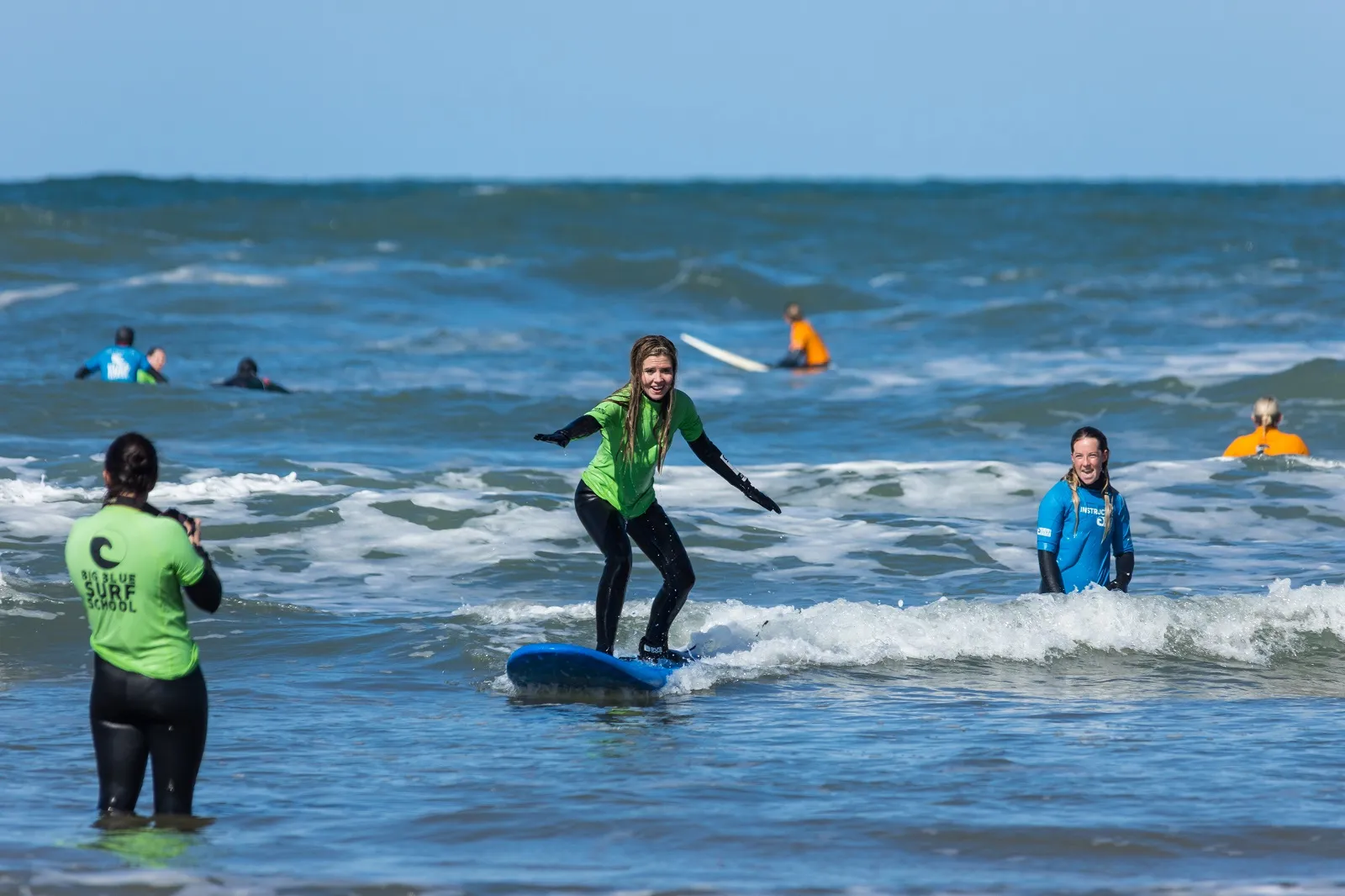
Want to enjoy the ocean but don’t fancy the fast-paced nature of surfing? Autumn is the perfect time to take a leisurely dip in Cornwall’s cool blue oceans, where you can take slow breaths as you gently float atop the water. The sea temperature remains warm throughout September and October, having been gently heated by months of summer sun, making these months ideal if mid-winter dips take your breath away.
Read our guide to wild swimming in conversation with Co Founder of Wild Swimming Cornwall, Lydia Paleschi.
With over 300 miles of stunning coast path to explore this Autumn, visitors are really spoilt for choice on which direction to head in. Whether its the rugged north coast and its hidden coves or the tropical south coast, you’ll find something different and exciting each turn you take. And with all of our properties walking distance from the water, you’ll have easy access to the coast path from your front door.
Interested in finding the best walks in Cornwall? Check out our blog on our favourite autumnal walks.
Choose the perfect path for you here.
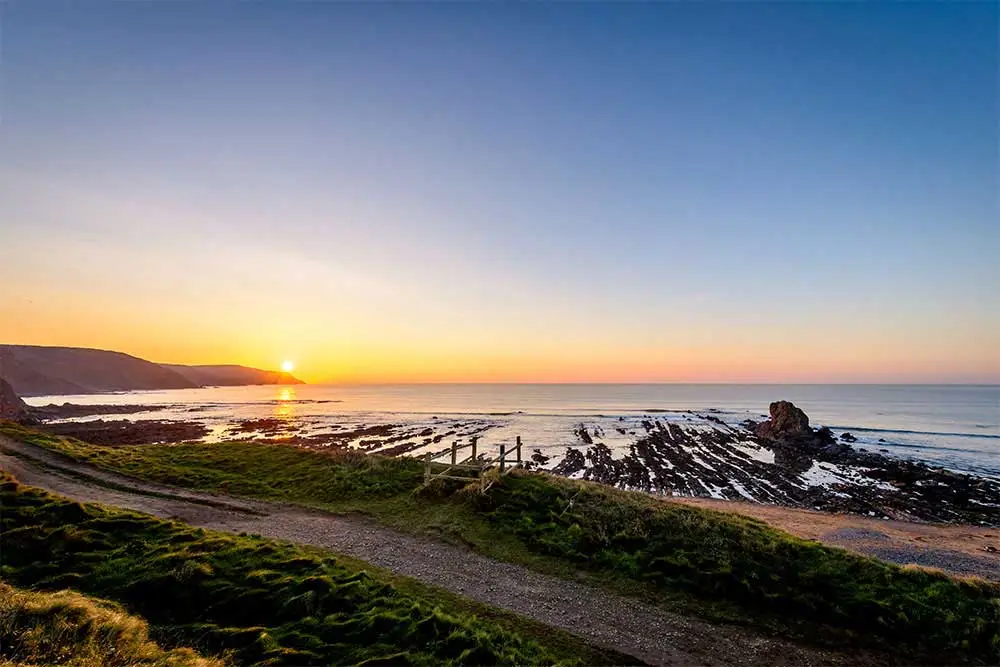
If the weather has cooled a little for your stay, don’t panic. There’s nothing better than hunkering down and watching the perfect storm whilst sipping on a delicious hot chocolate…with extra toppings of course. Our top spot for this is The Beach Hut at Watergate Bay, where you can indulge on the sweet taste of cocoa and cream in with a front row view of the surfers braving the cold.
Explore Cornwall’s beaches this autumn, when you’ll have more of the sand to yourself. Walk the shell-dotted shorelines until you find the perfect nook to sit back, relax and listen to the sights and sounds of the Atlantic ocean. Pack a beach blanket, swimsuit and a good book – it’s all you need to while away hours.
Browse our different beach locations and pick your favourite.
Cornwall’s not only known for its stunning beaches, its magical gardens are home to a wealth of exciting, rare and beautiful plants and trees just waiting to be explored. Head to The Lost Gardens of Heligan to discover higgledy allotments, greenhouses bursting with herby aromas, wonky pumpkins sprouting from the ground and the hidden sleeping giant dusted with moss.
